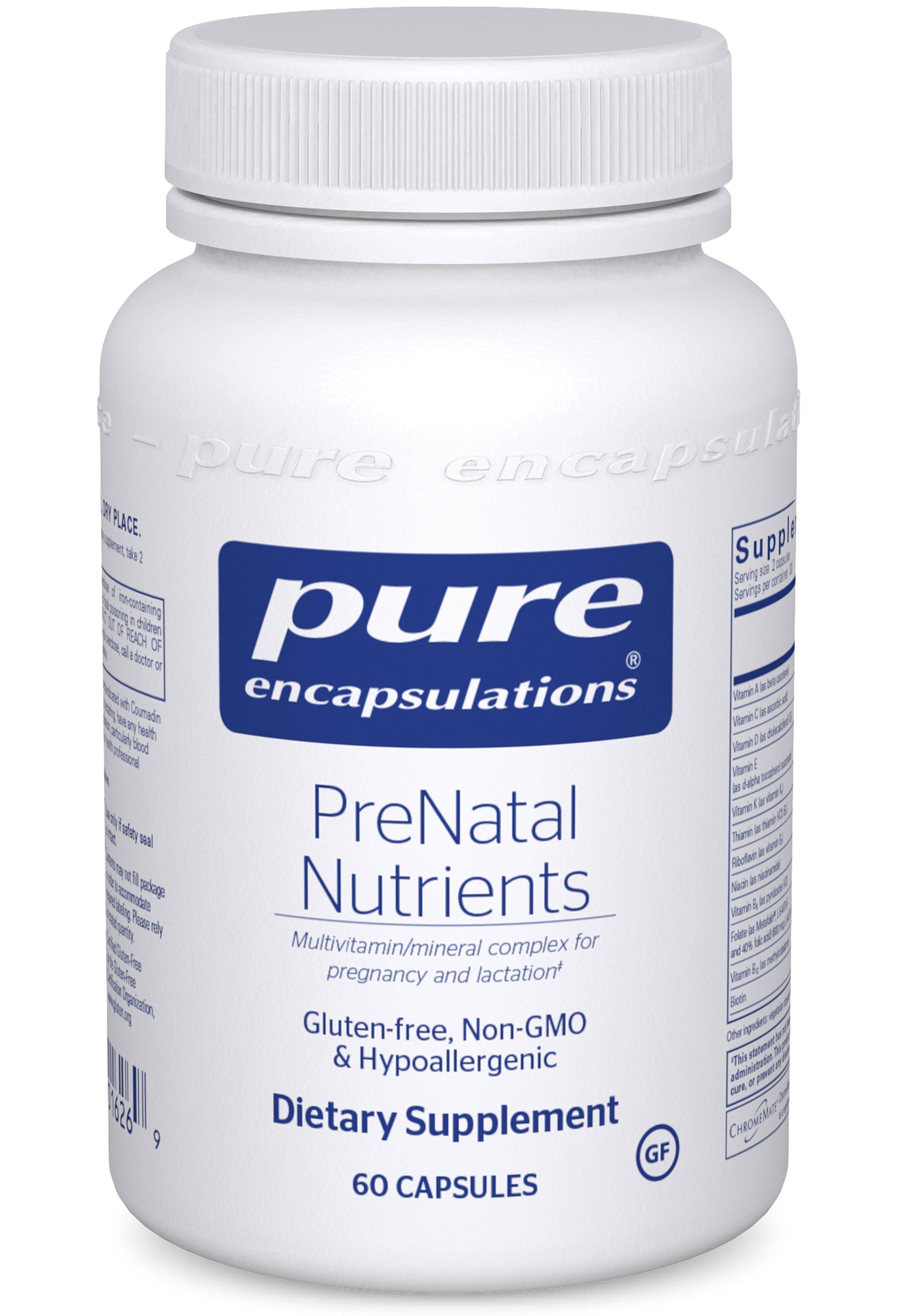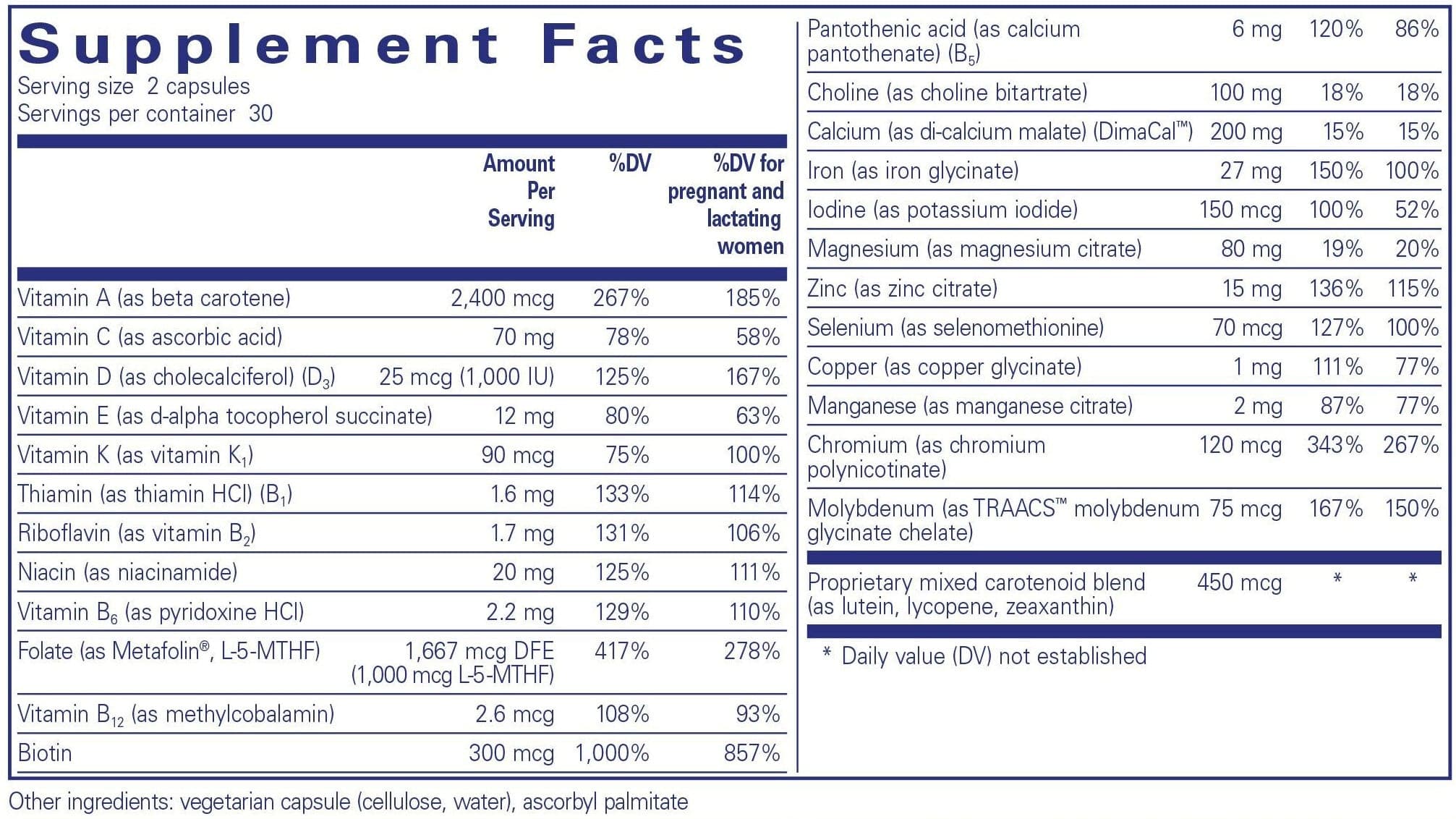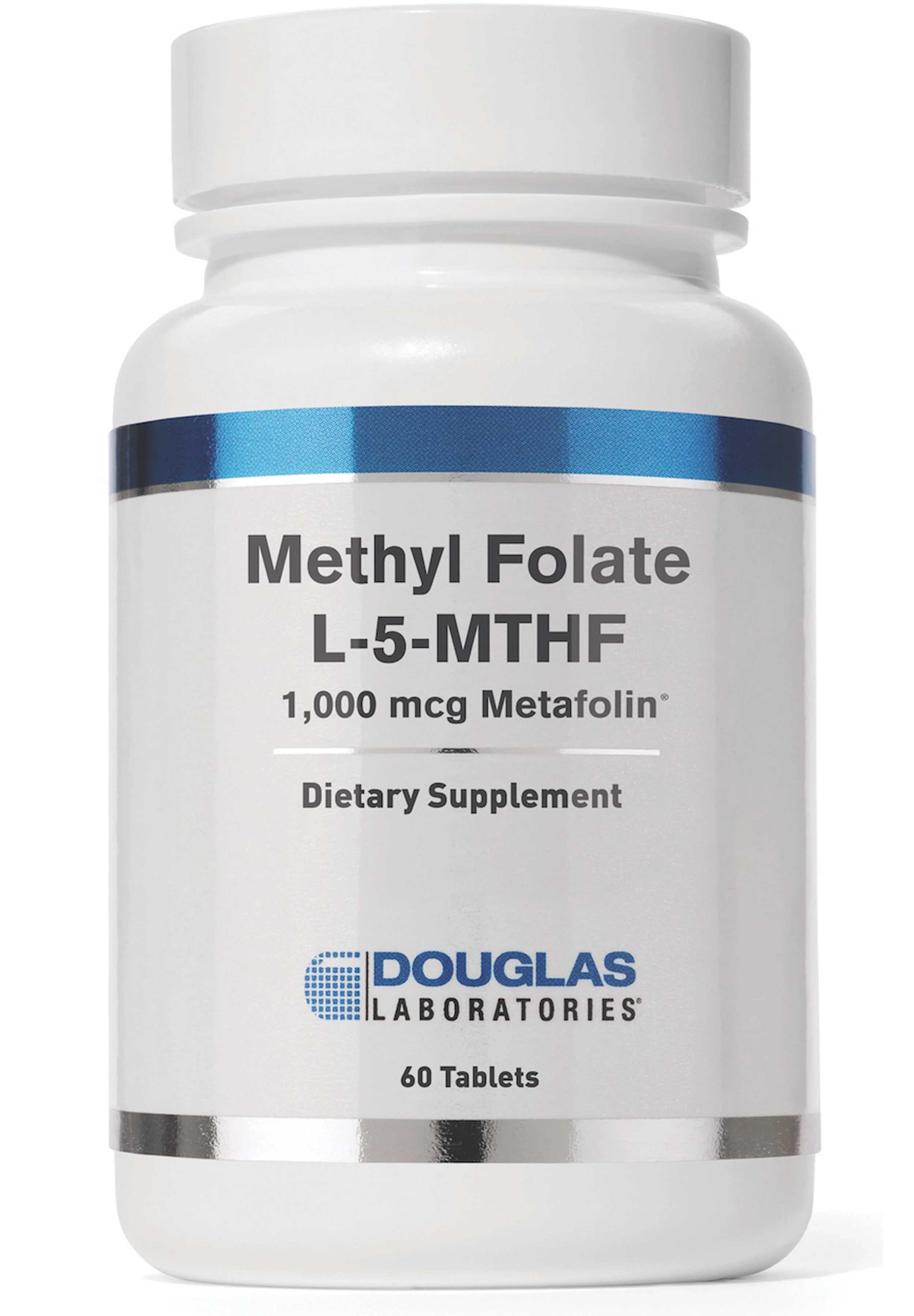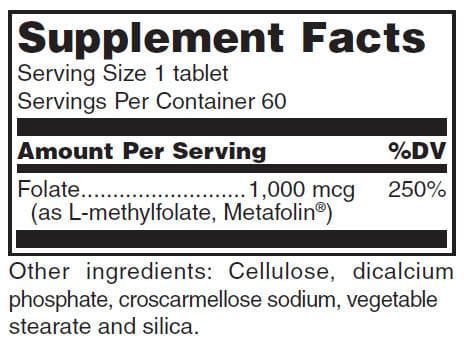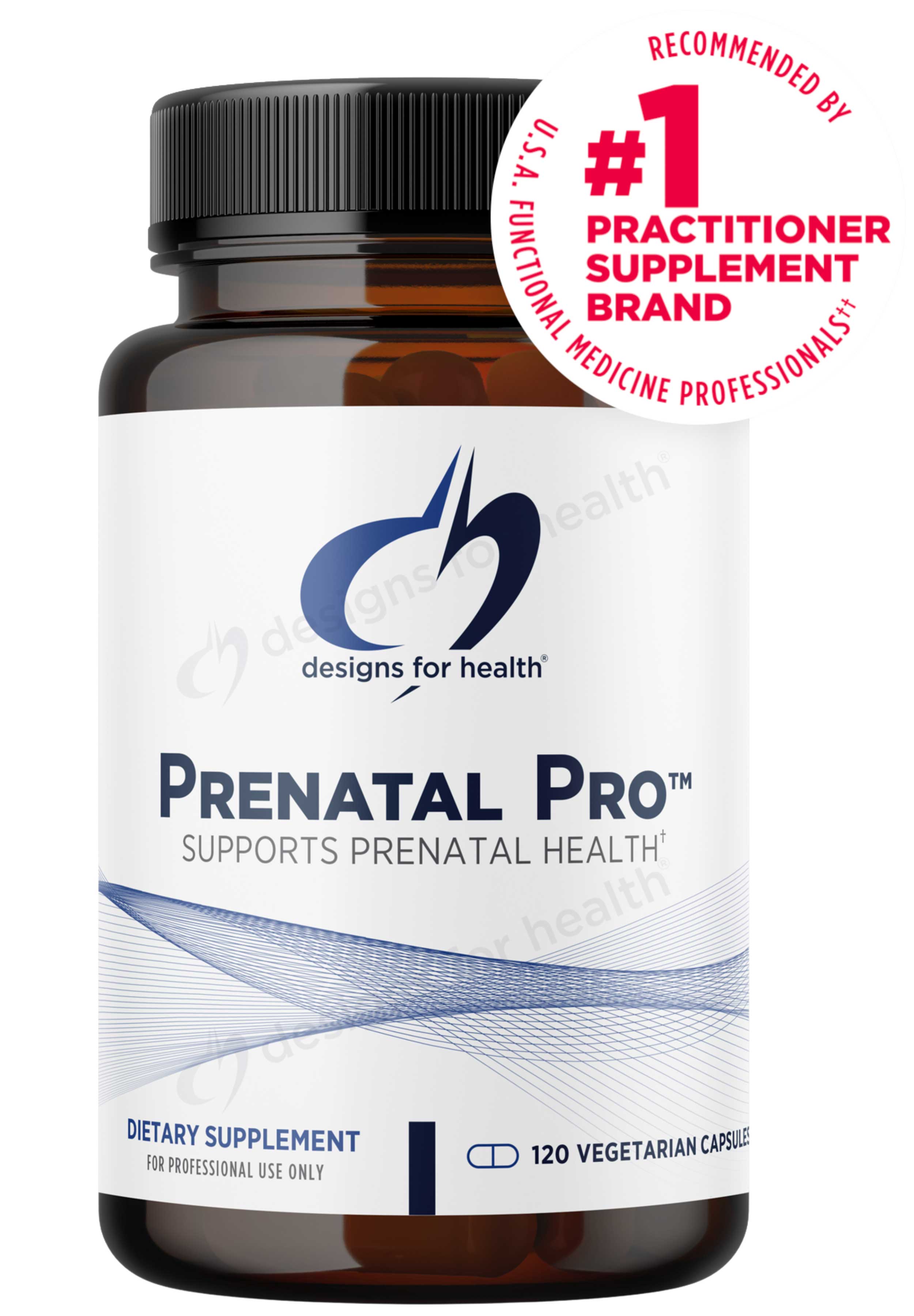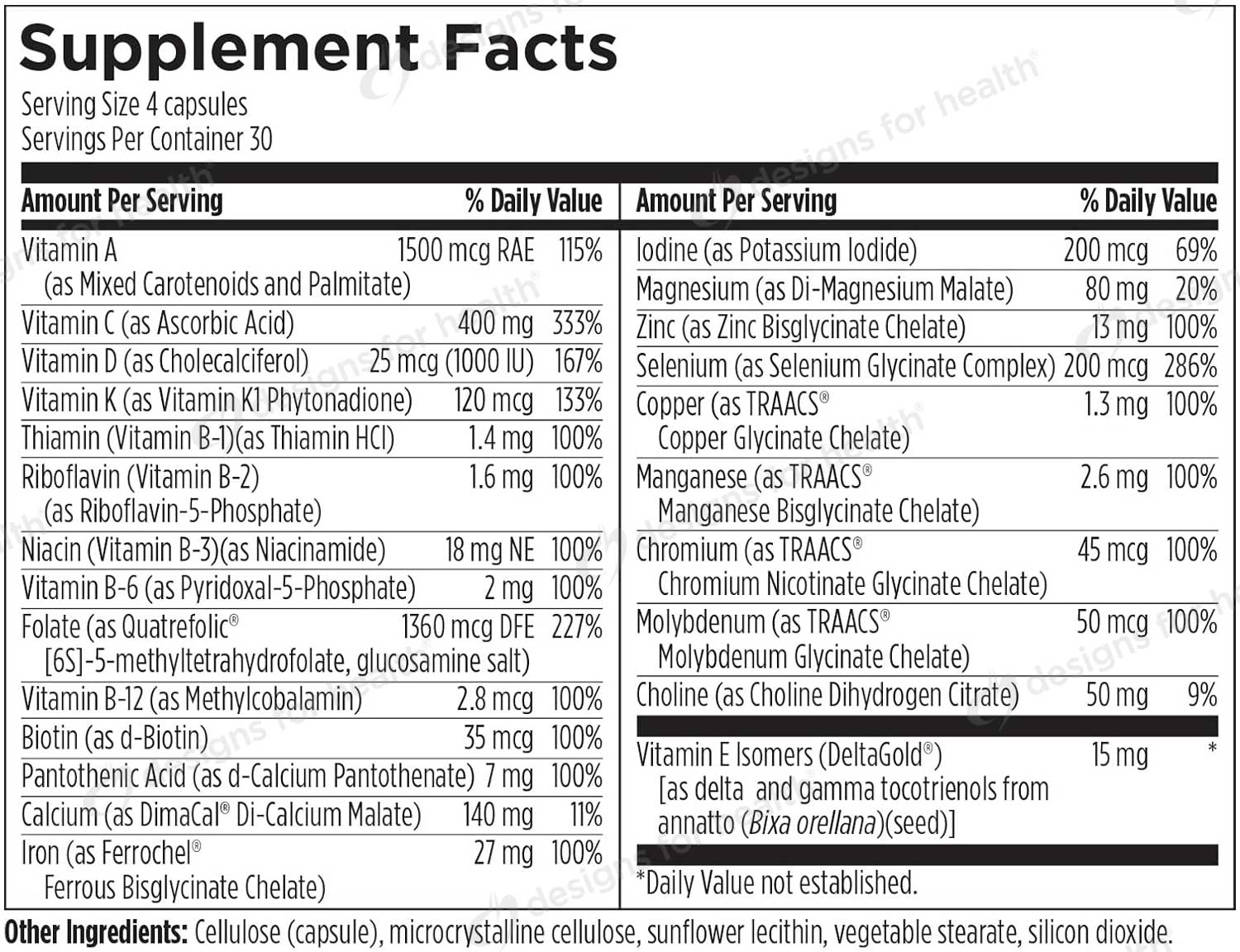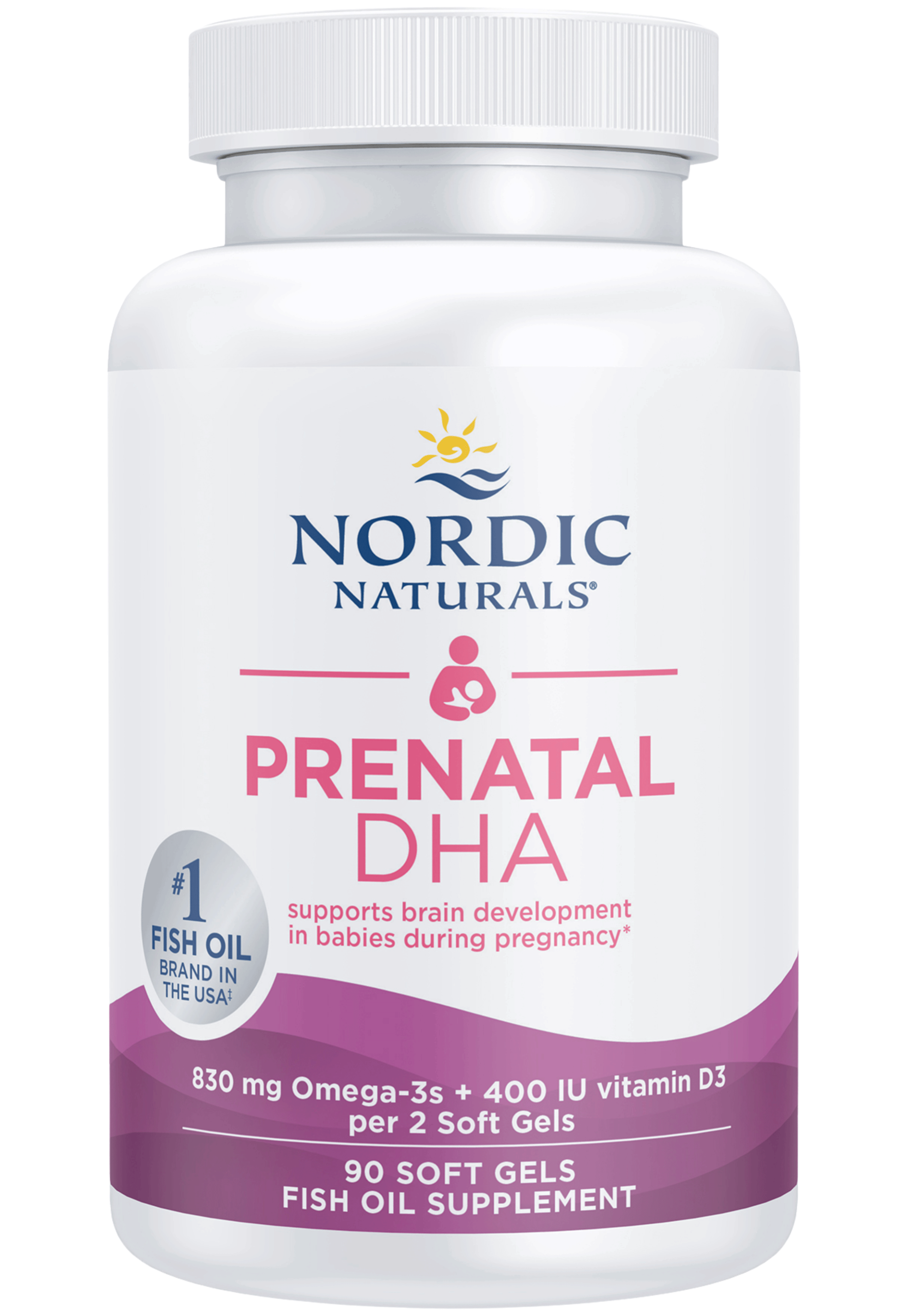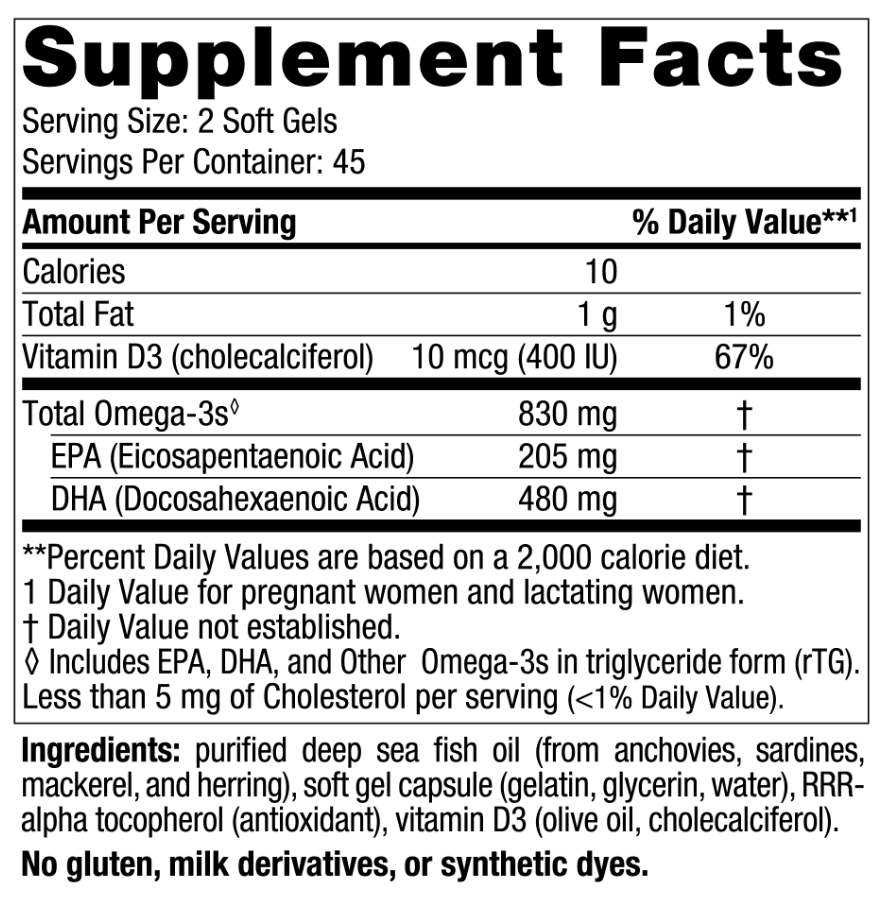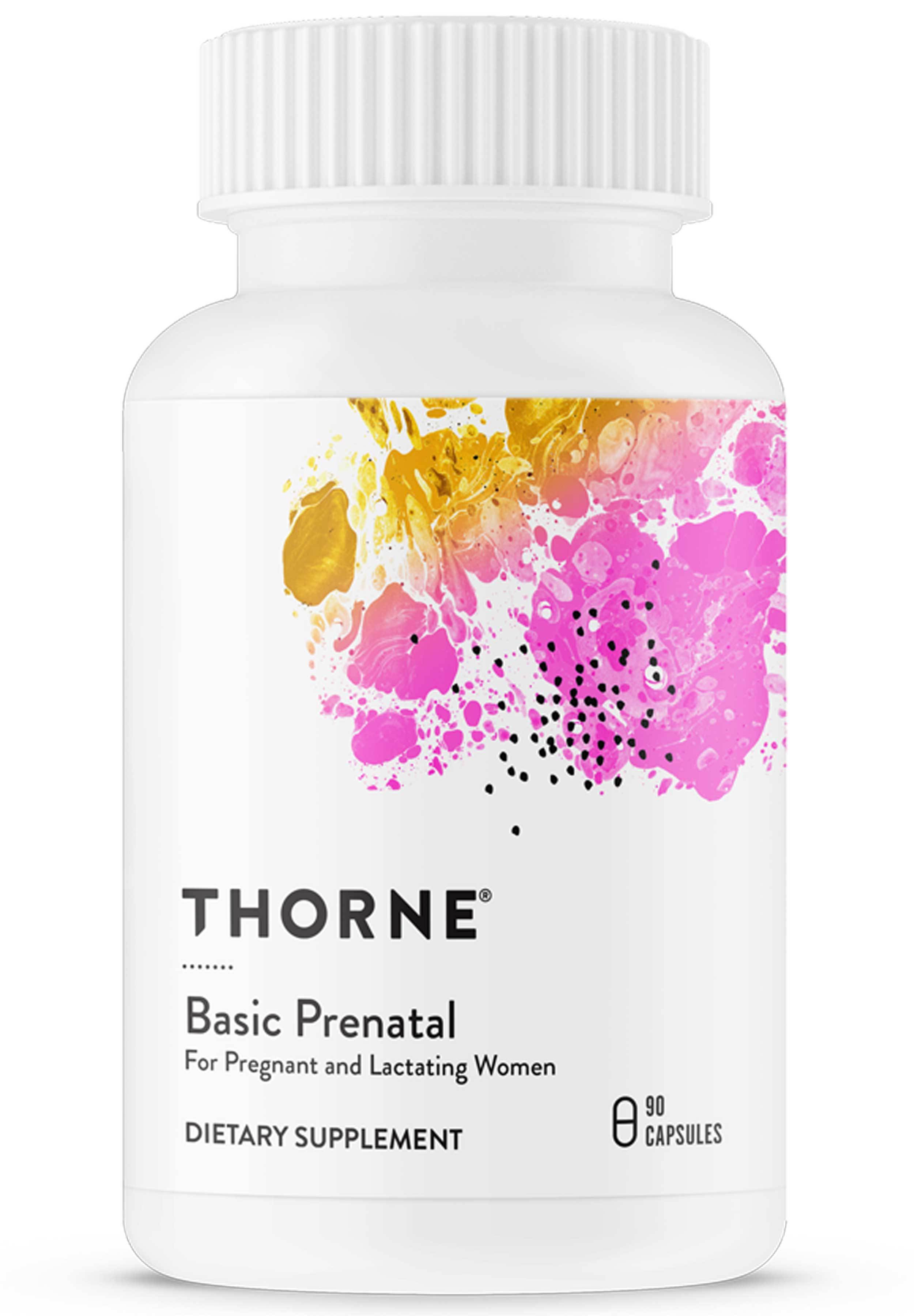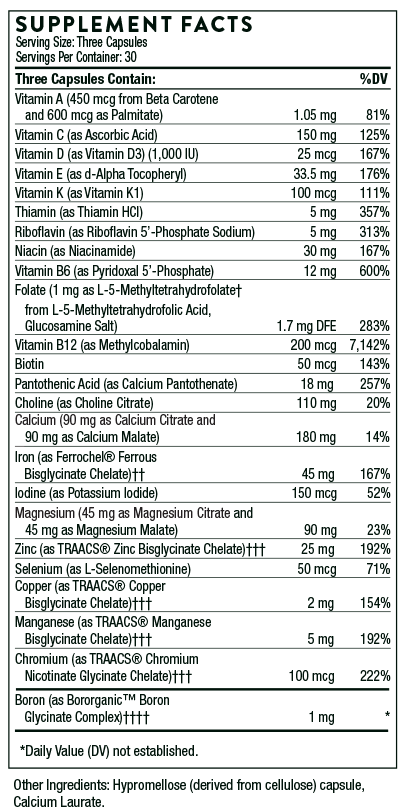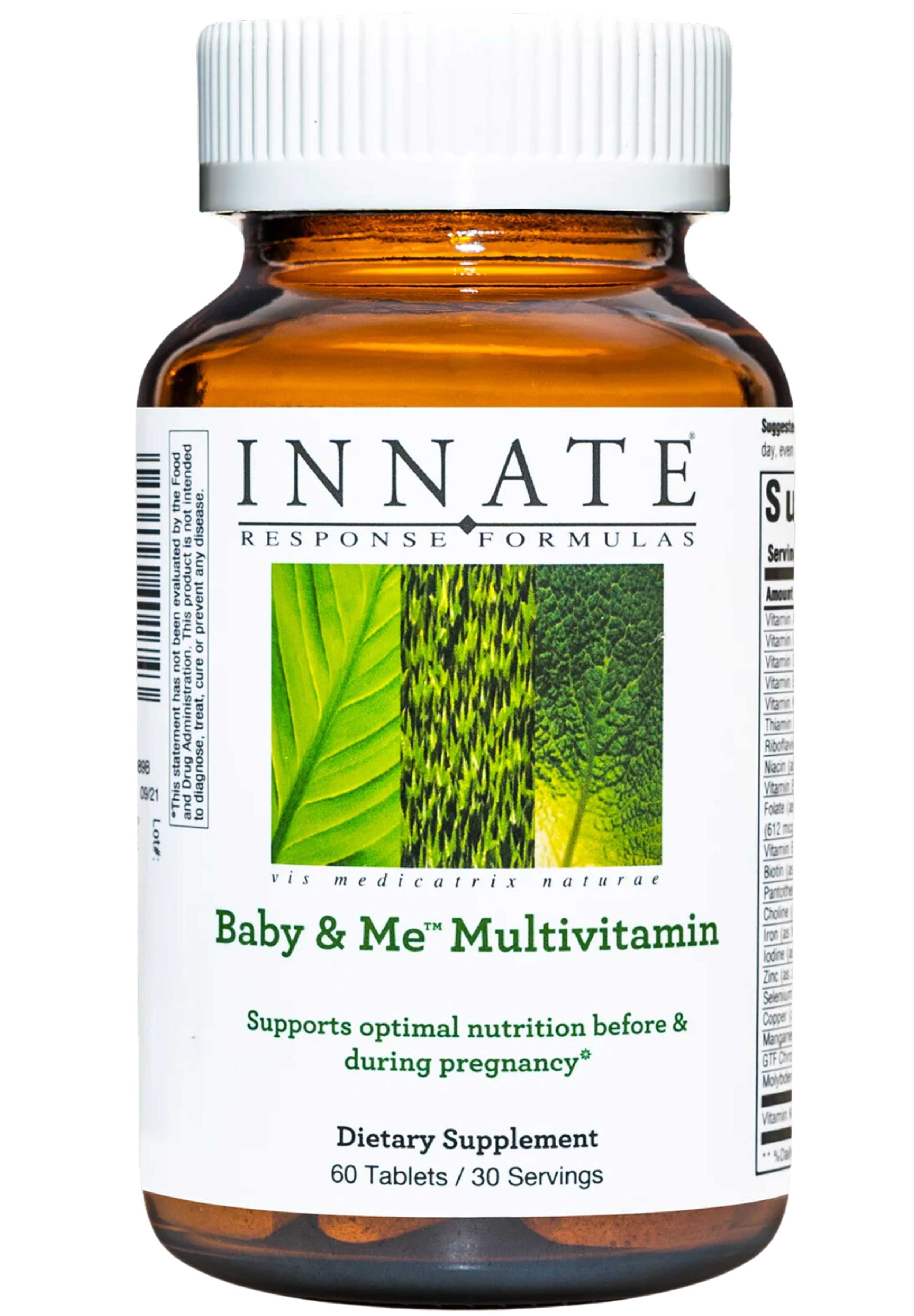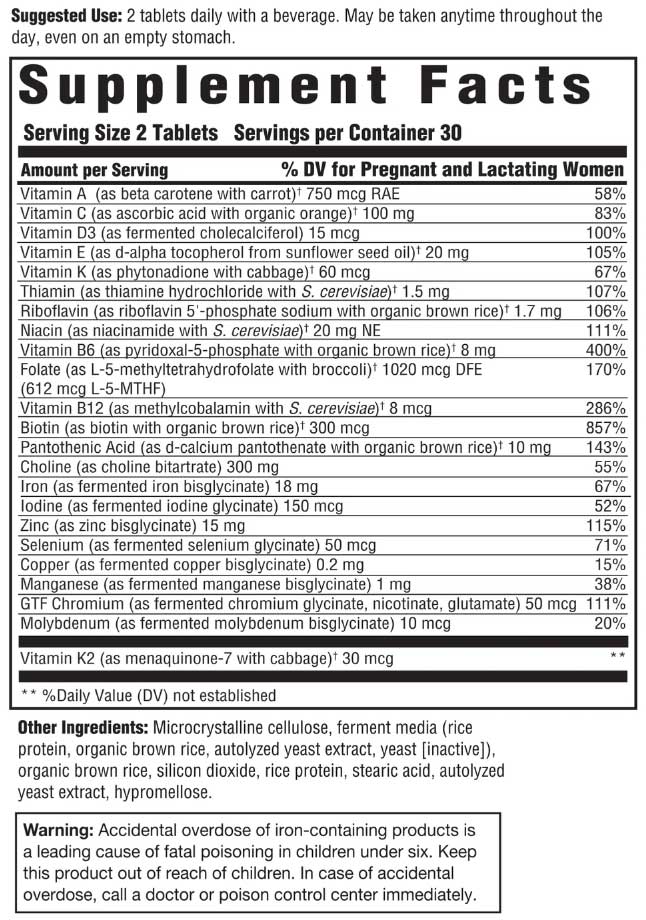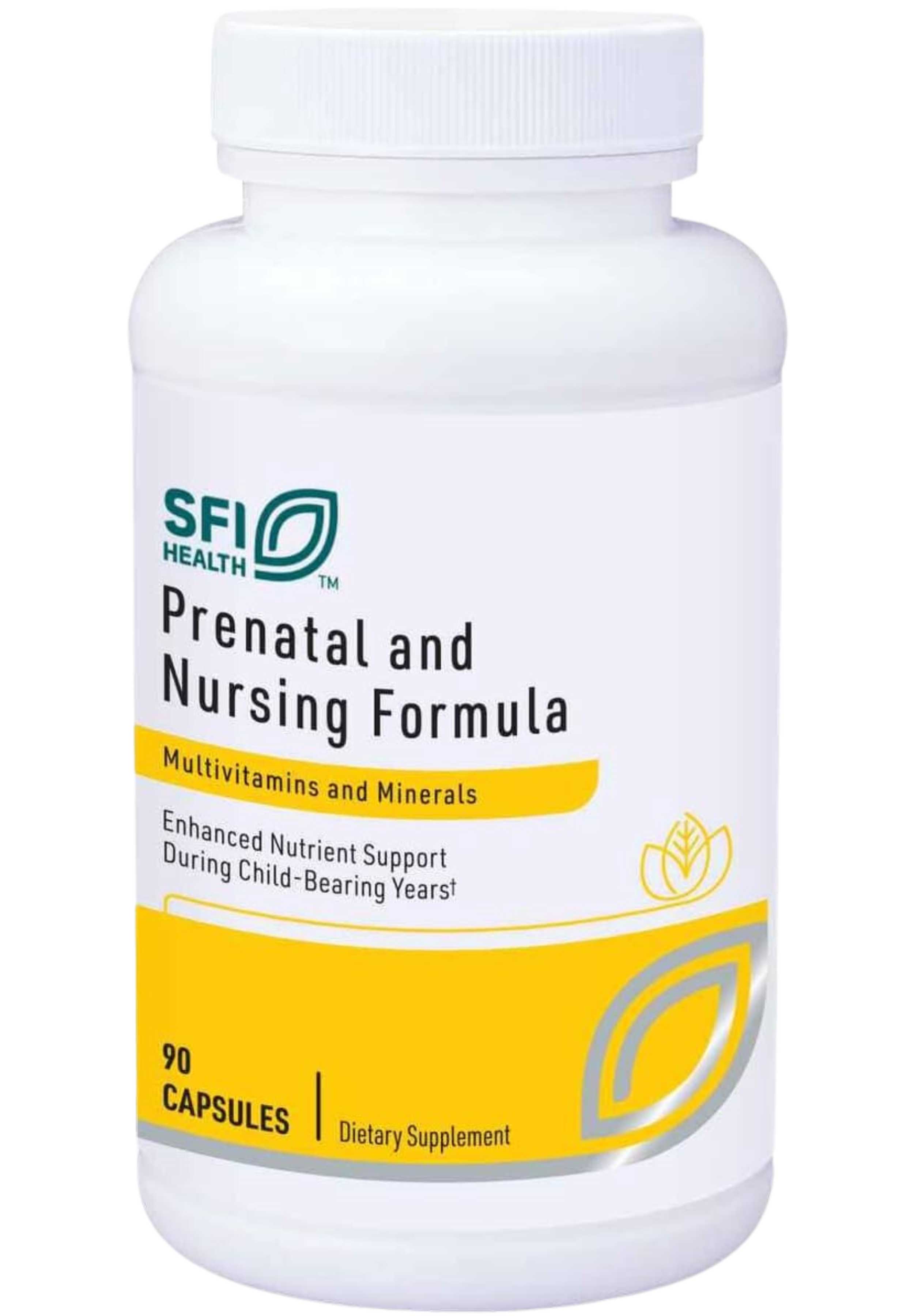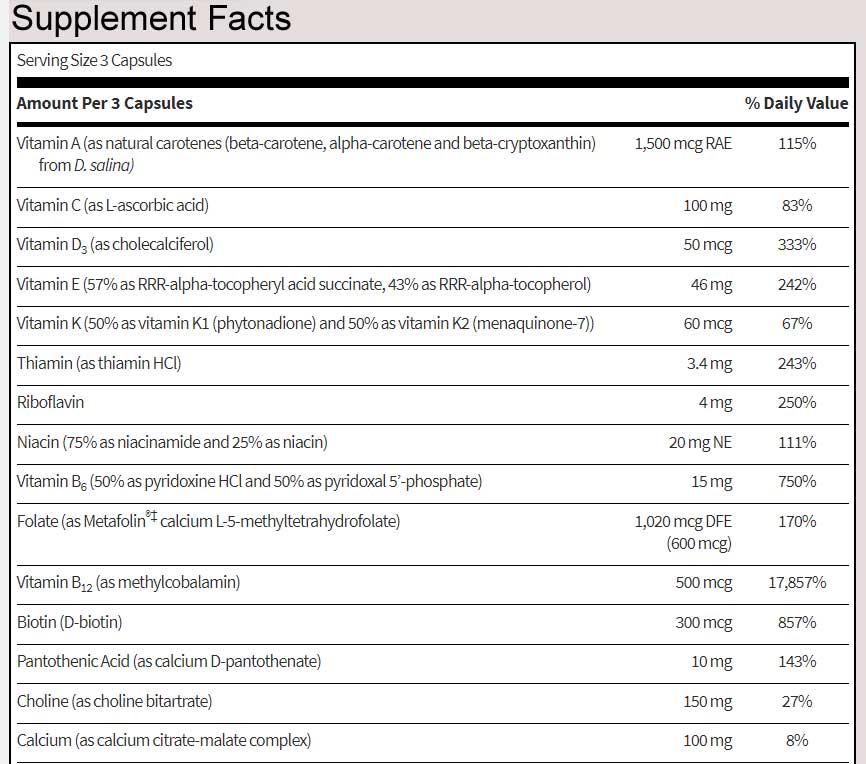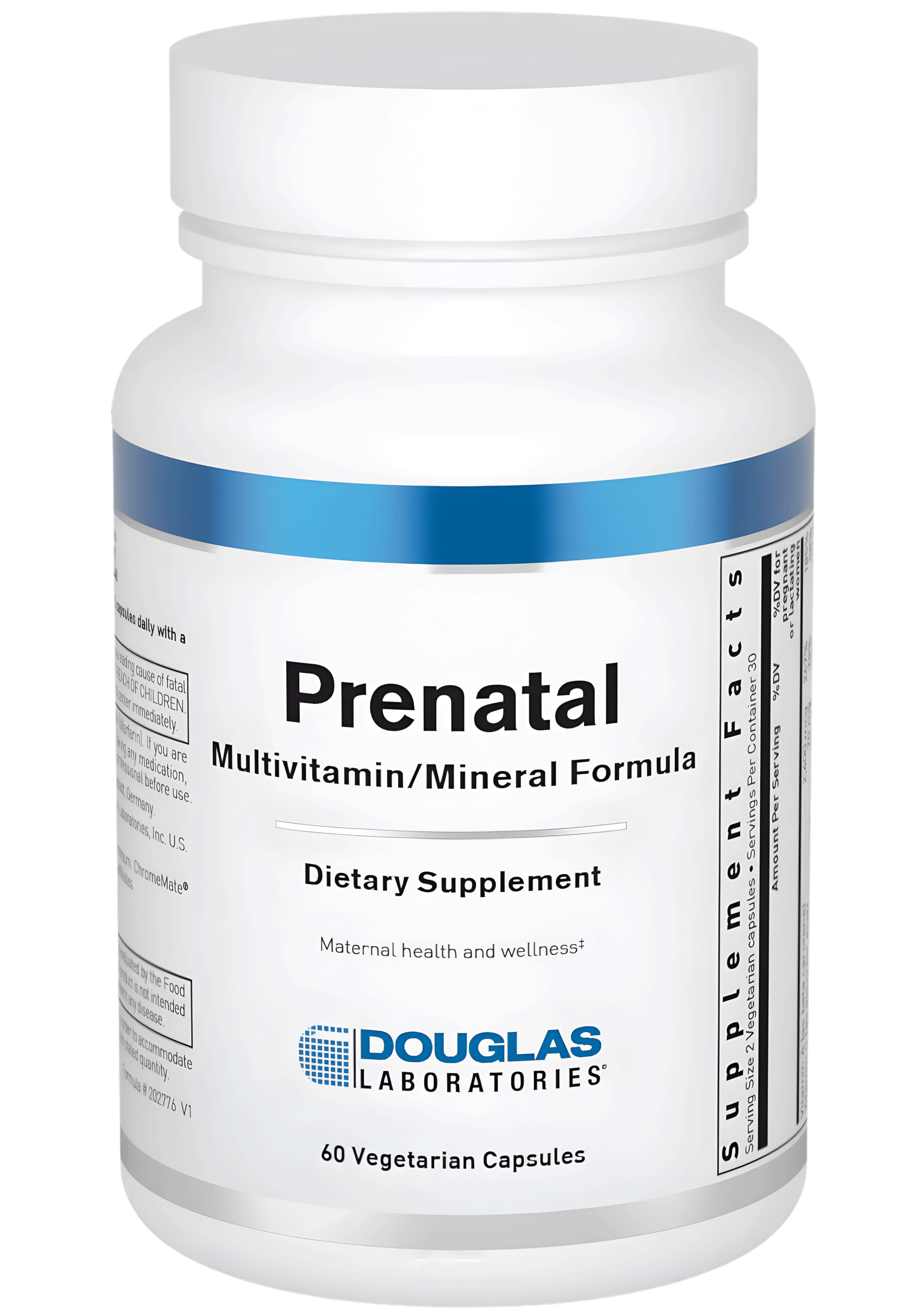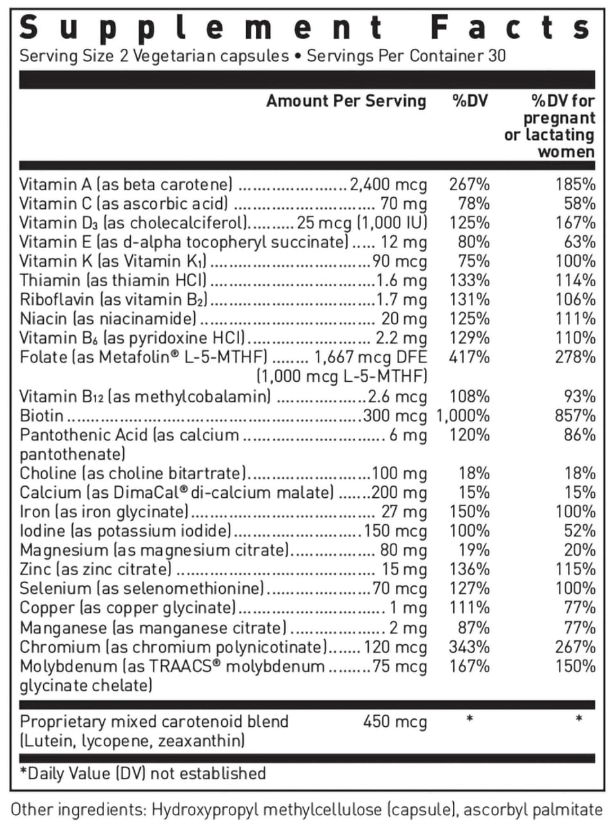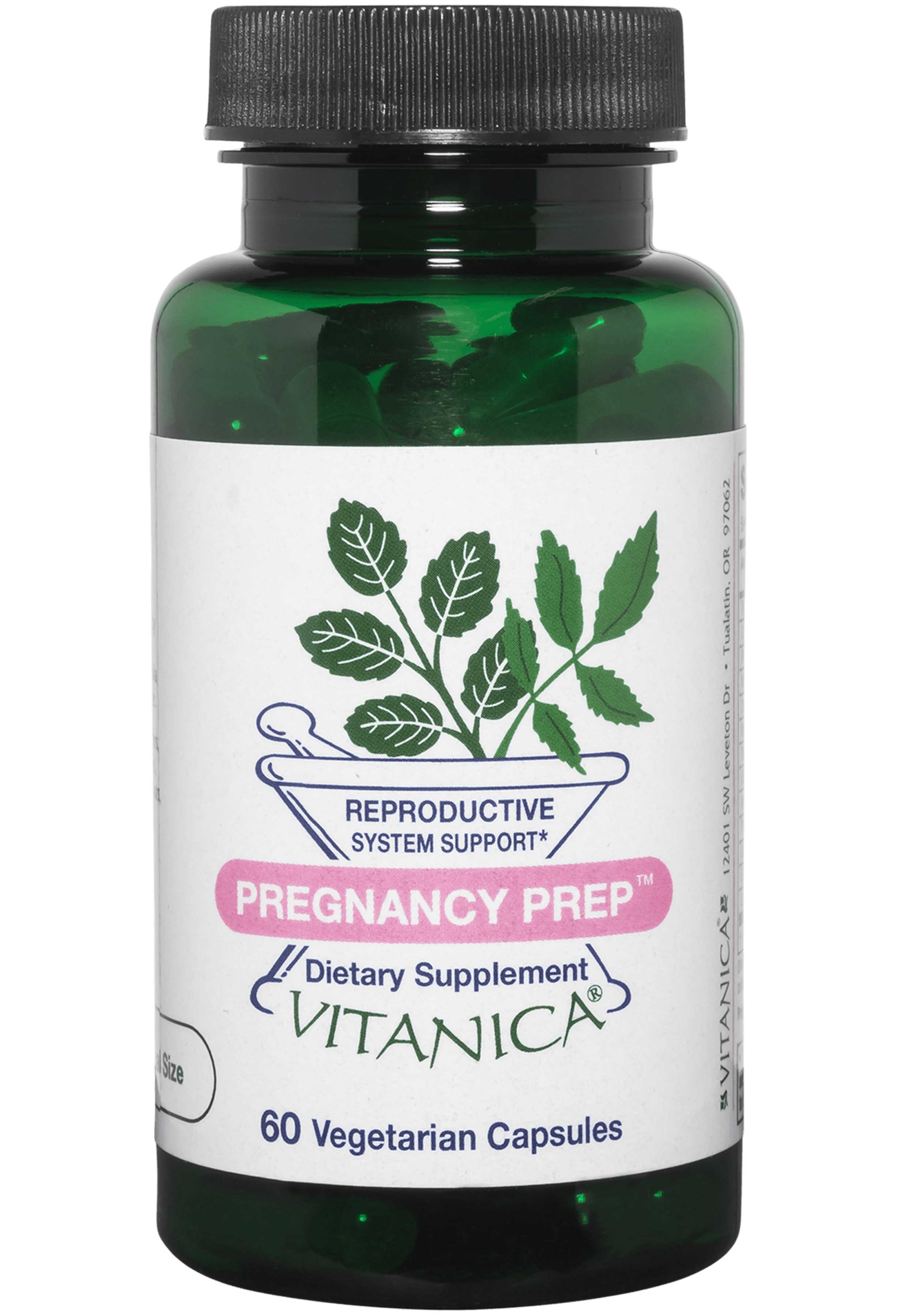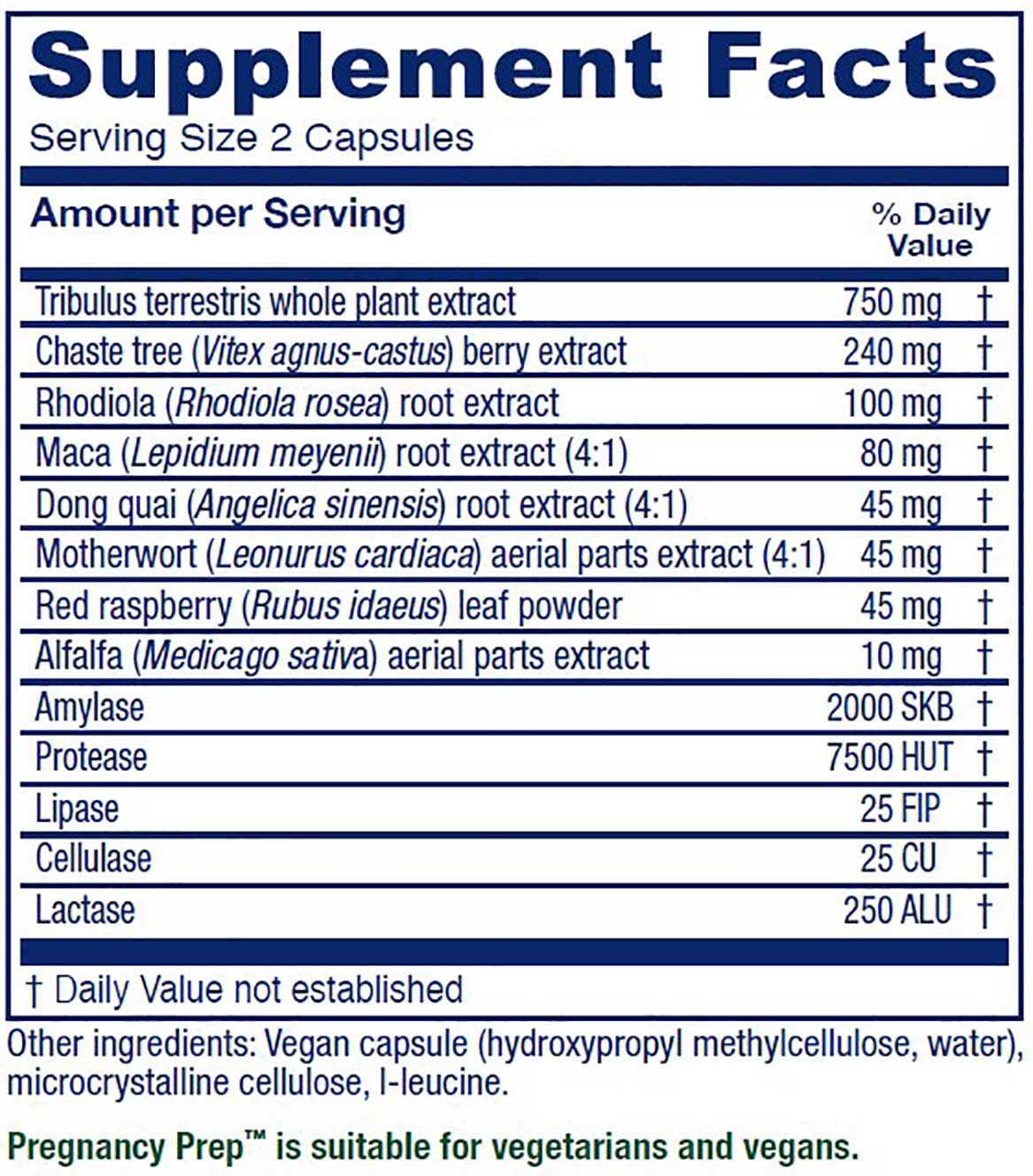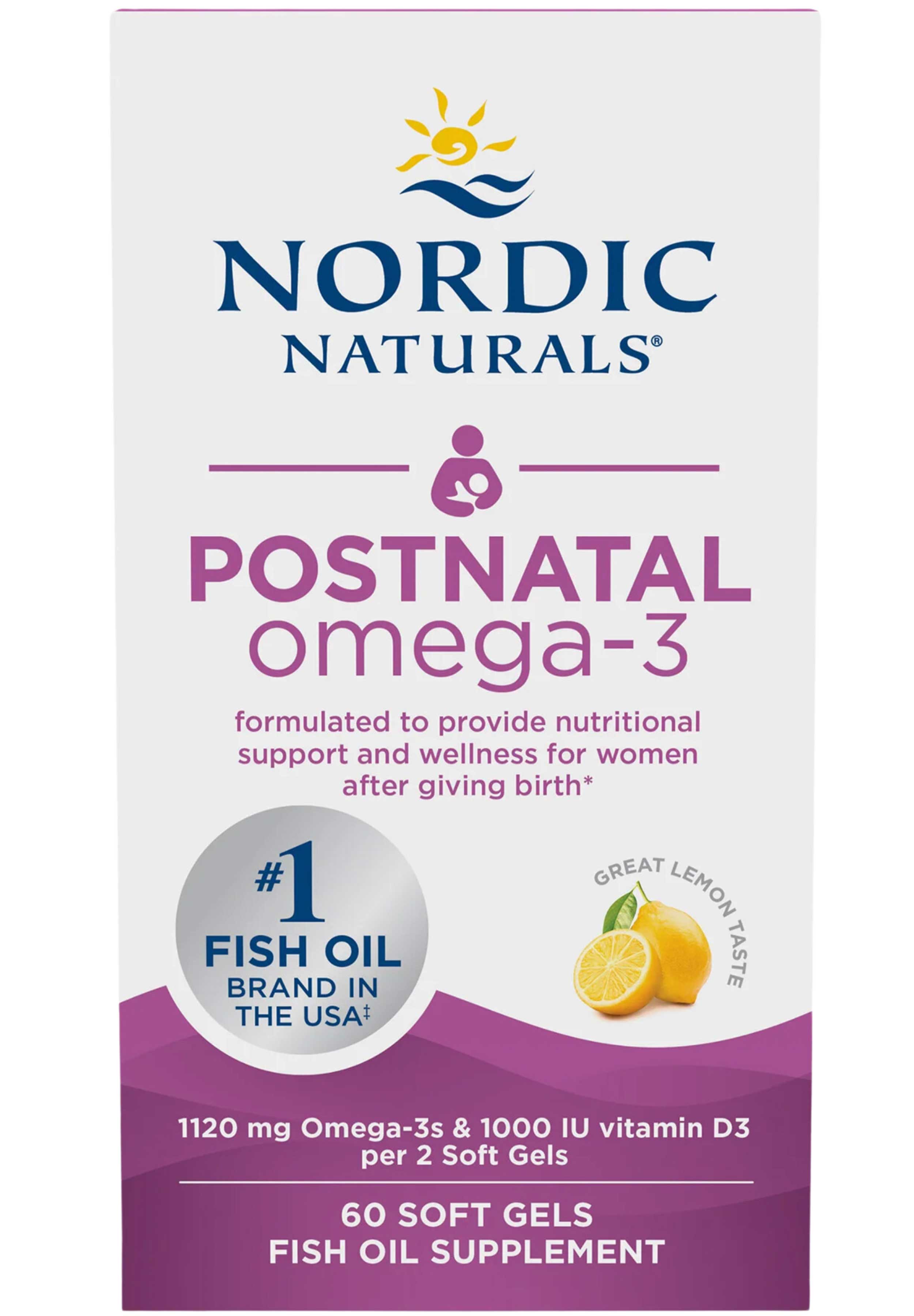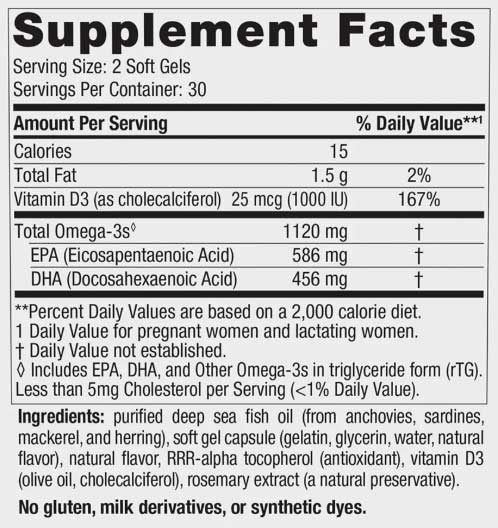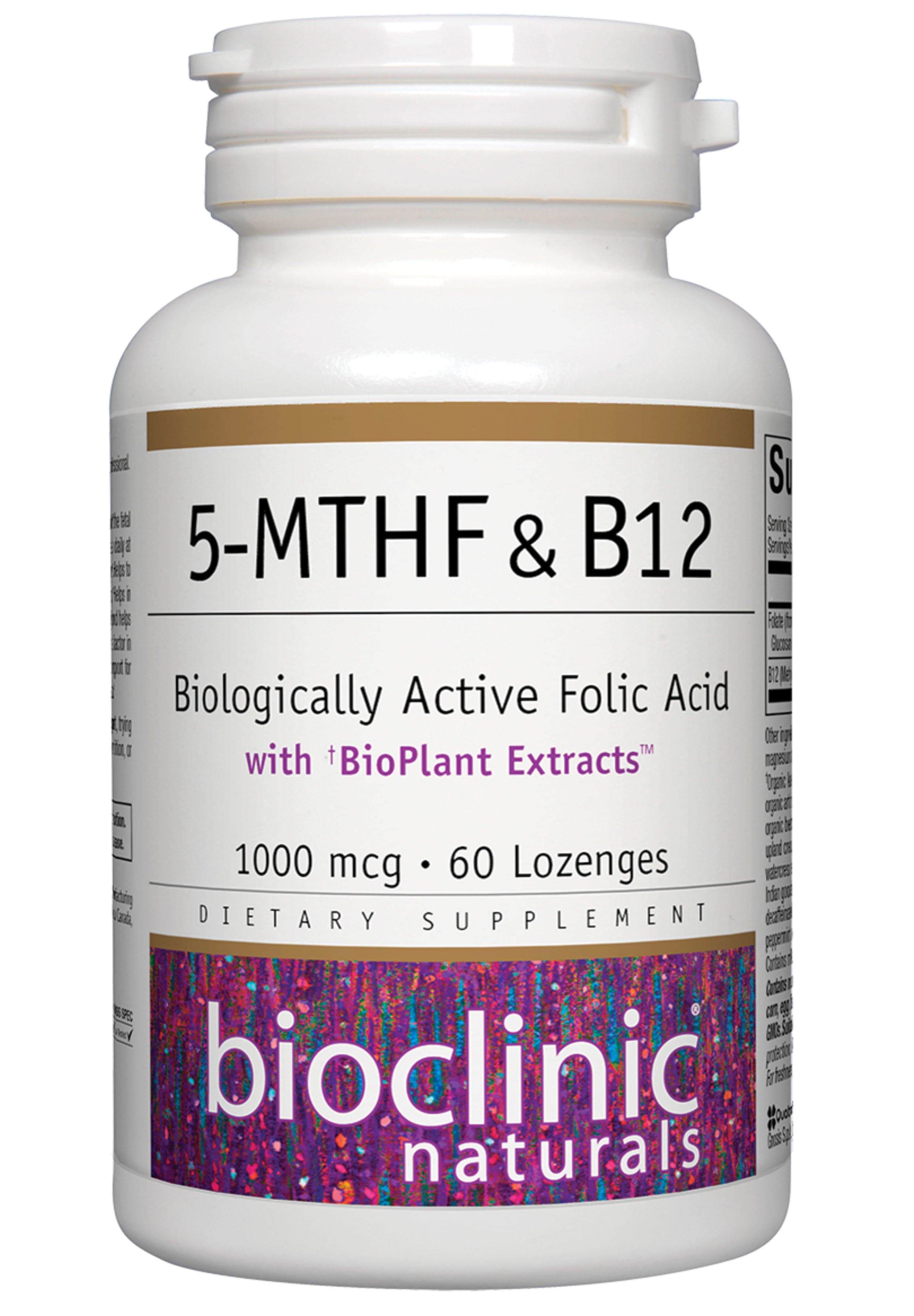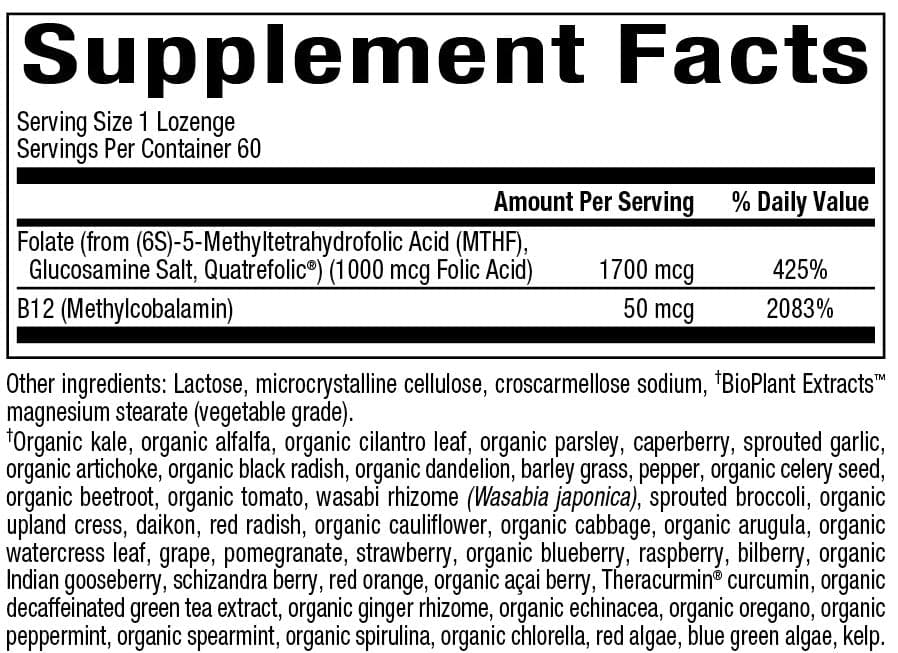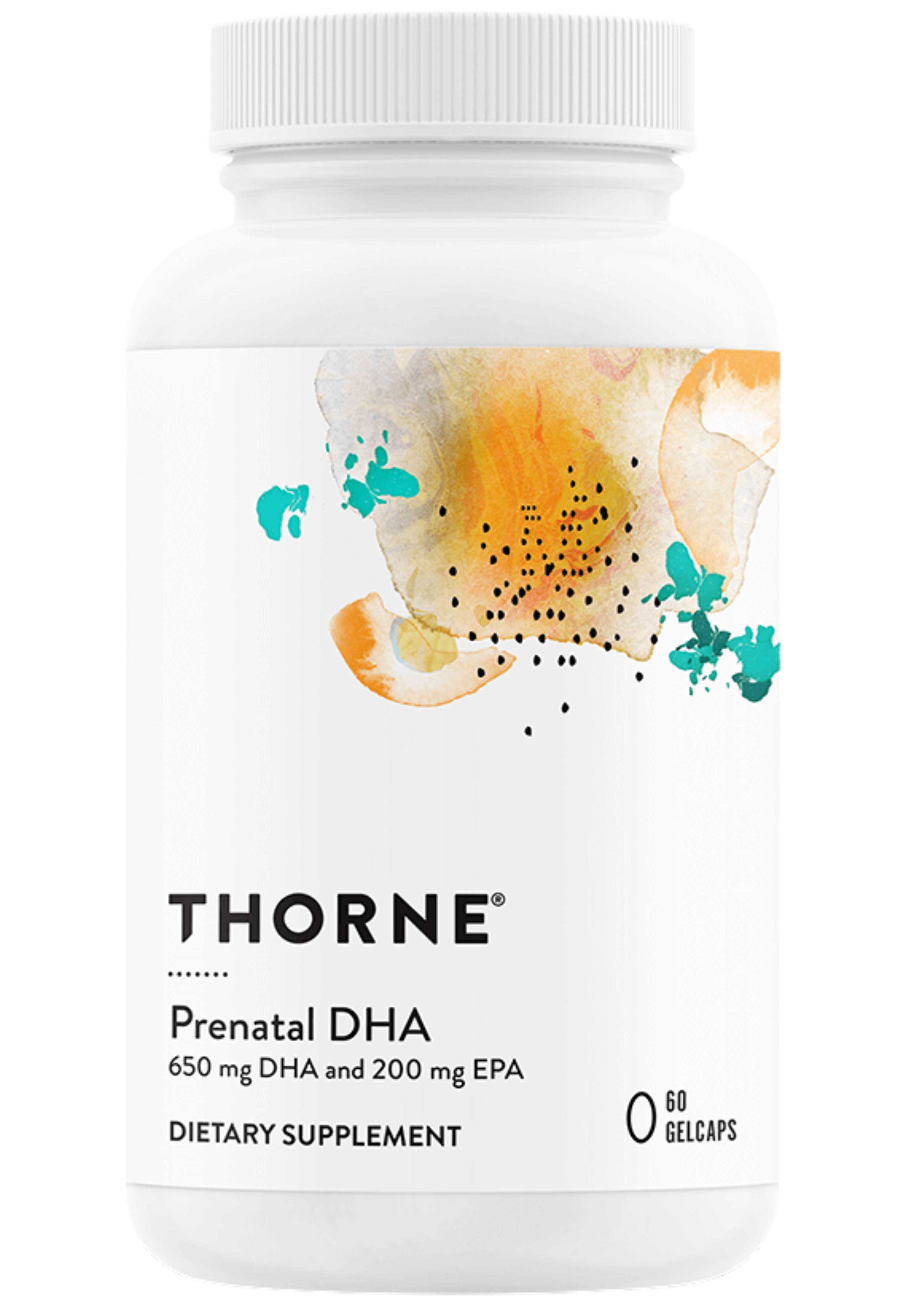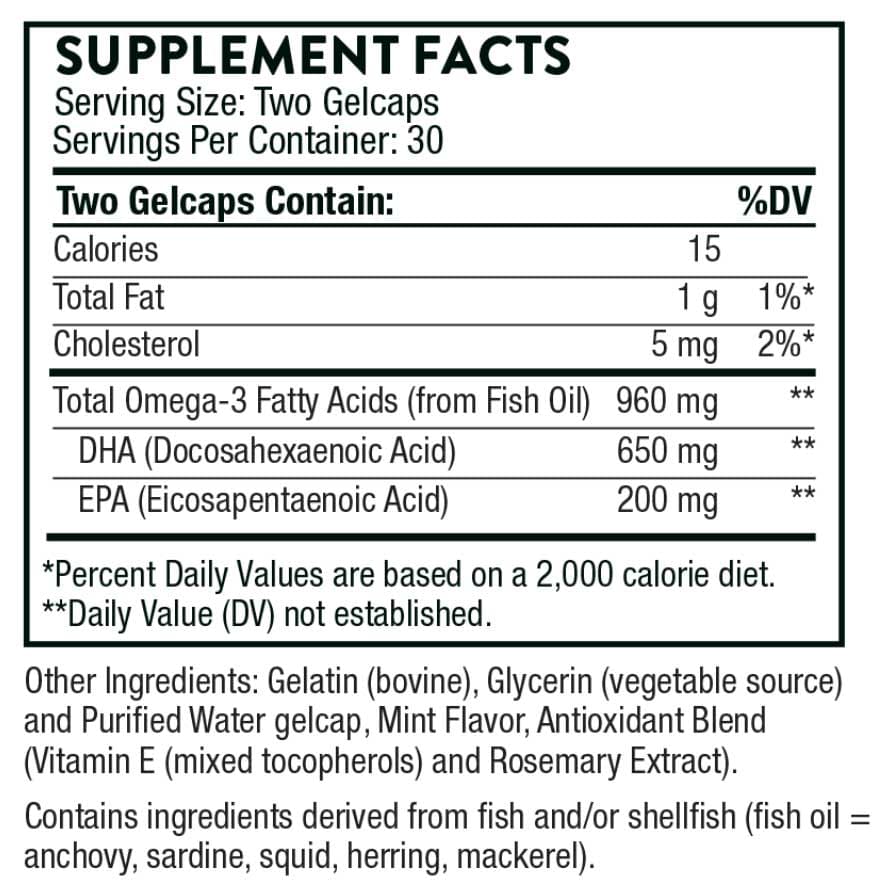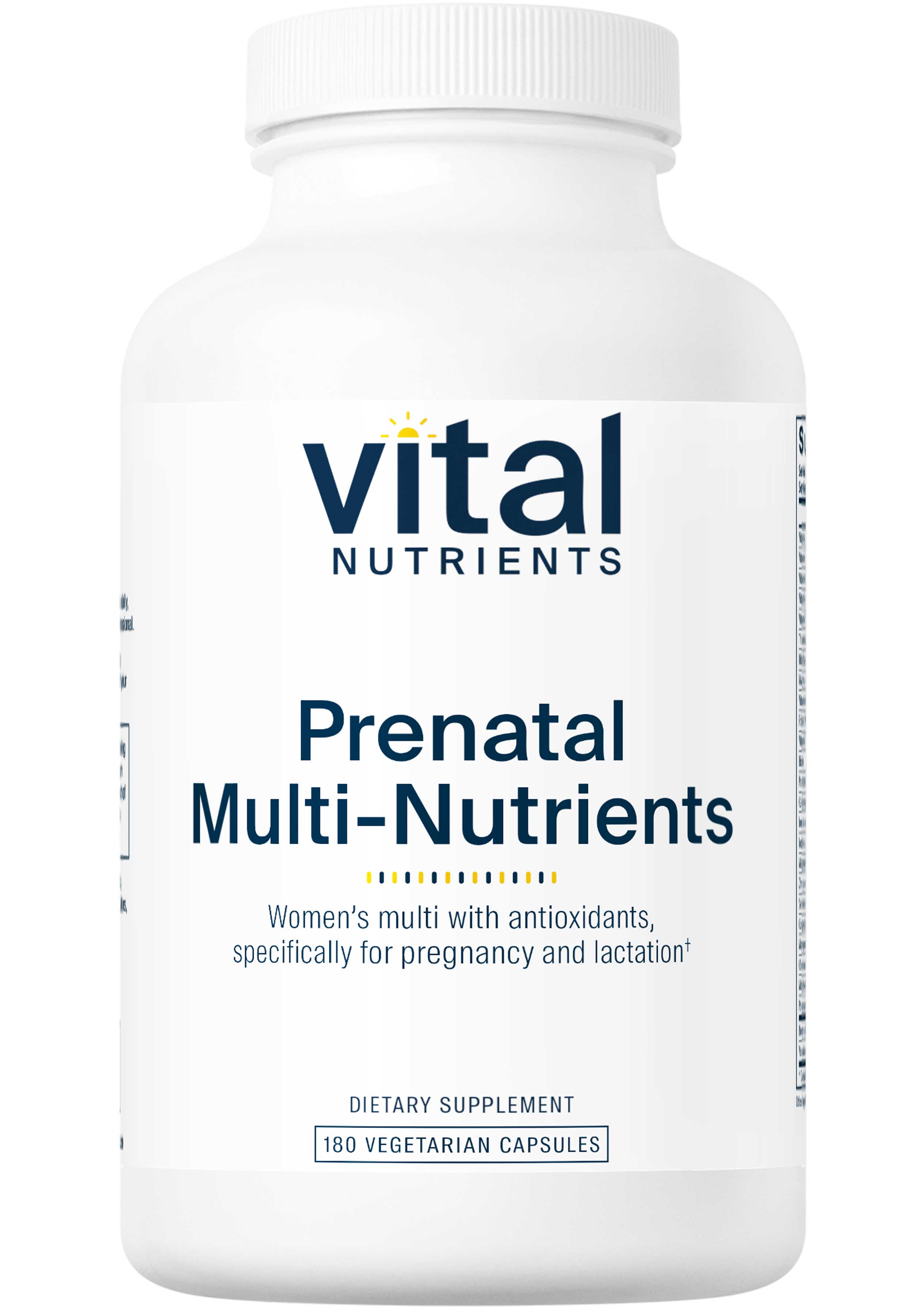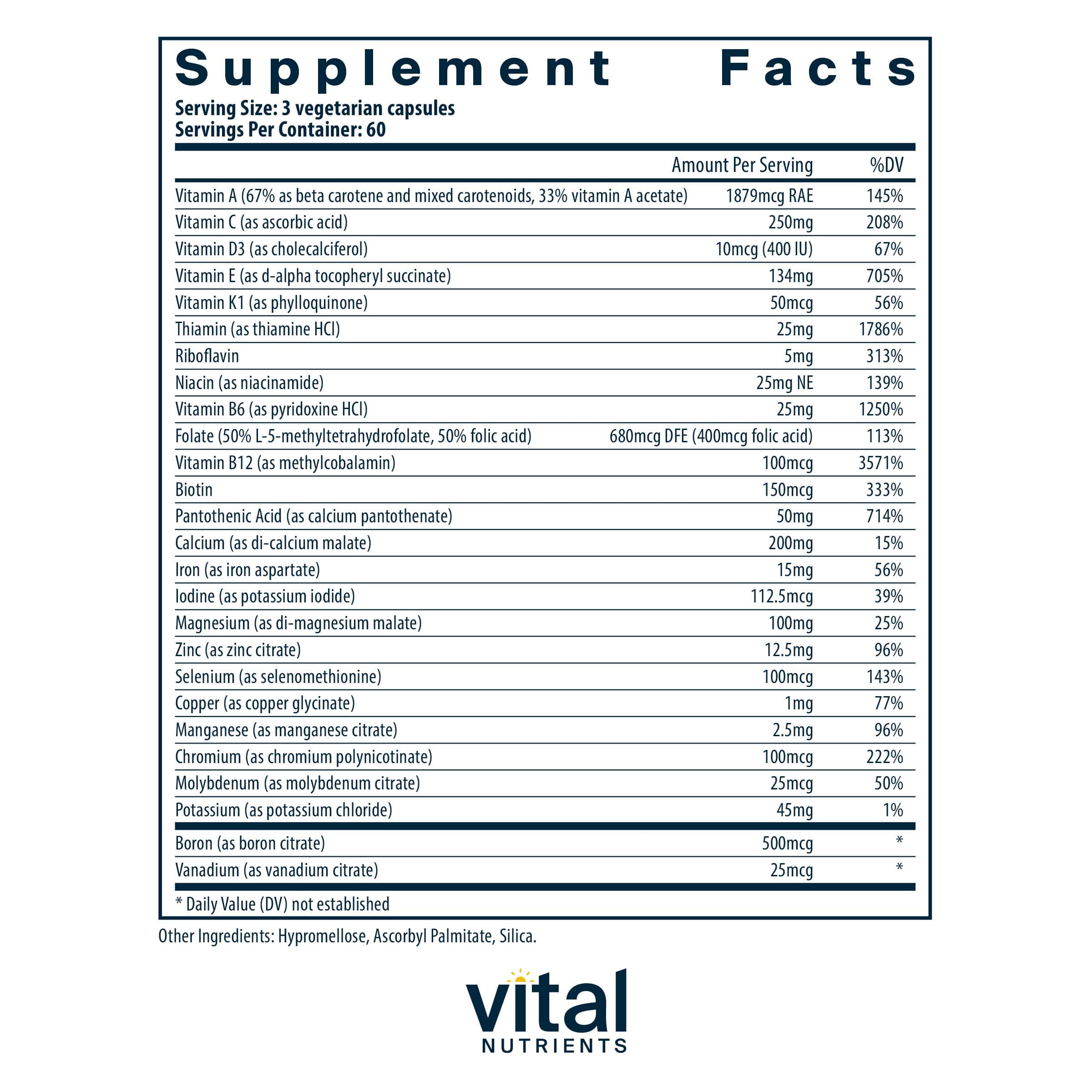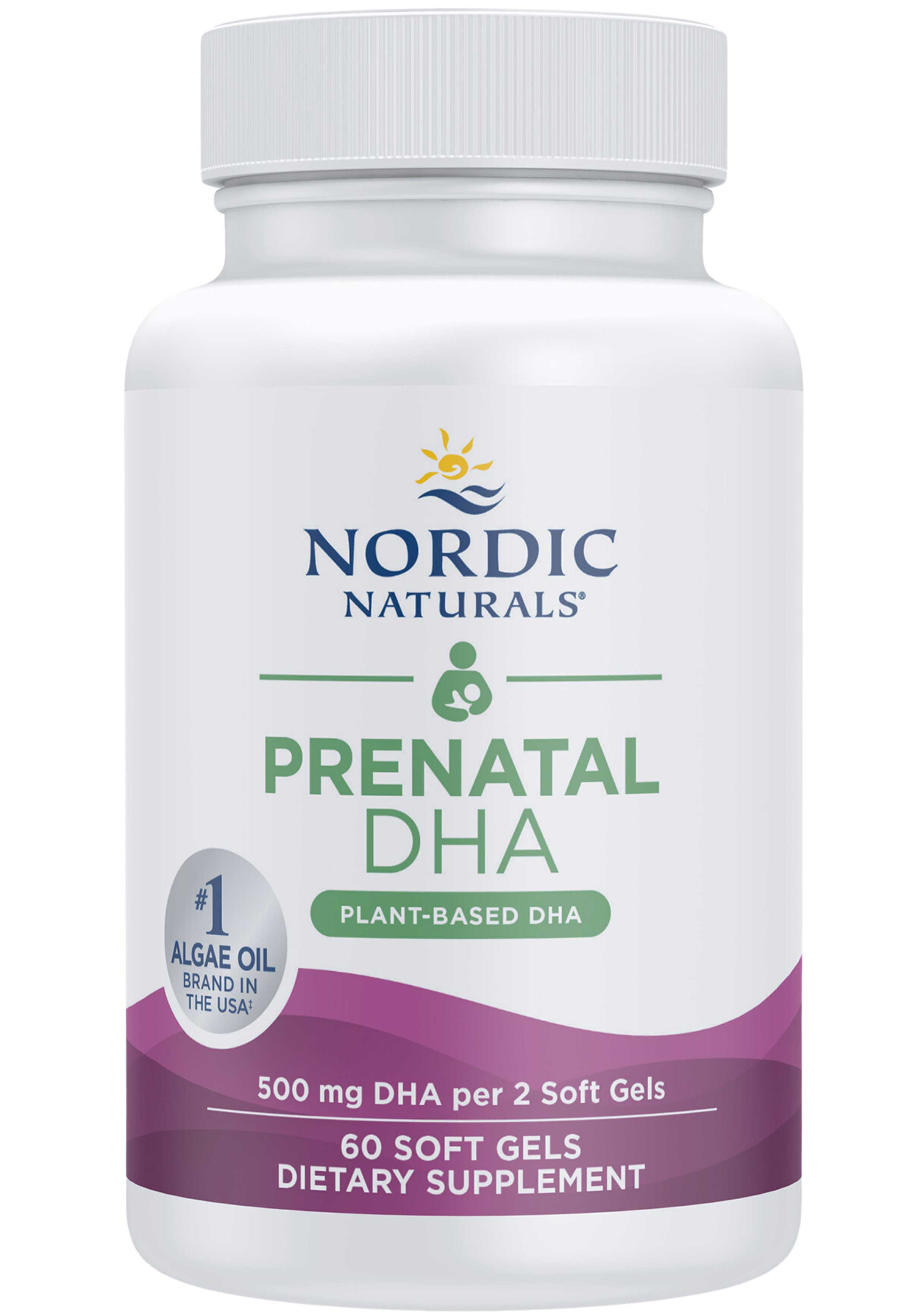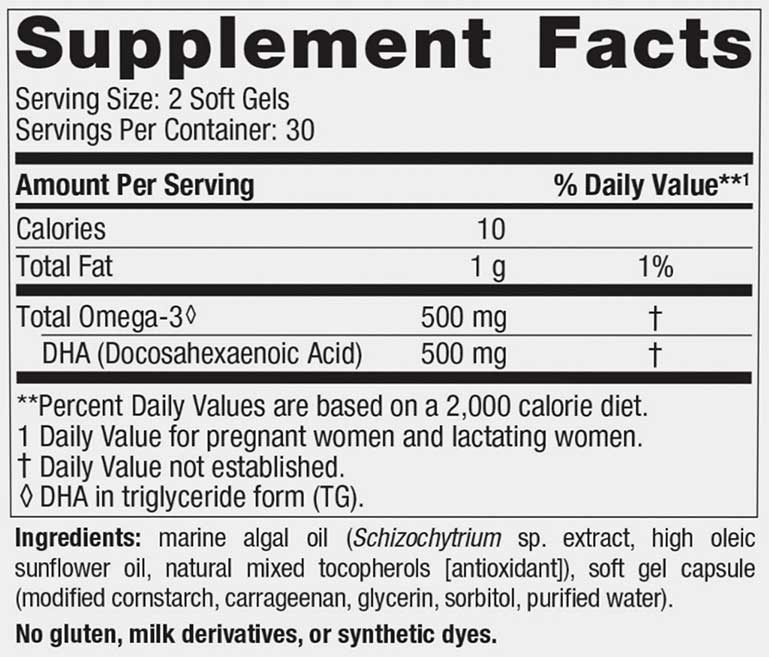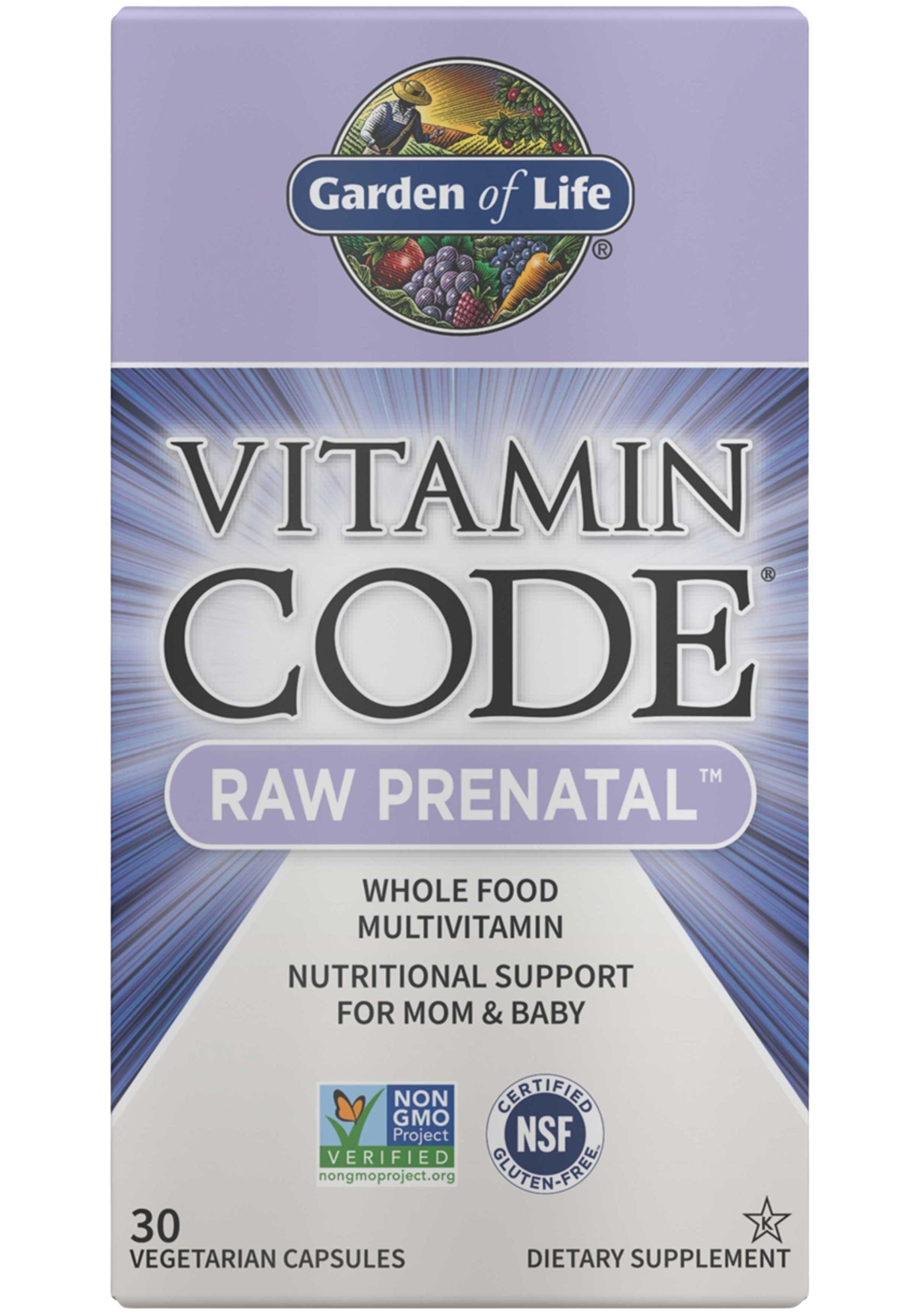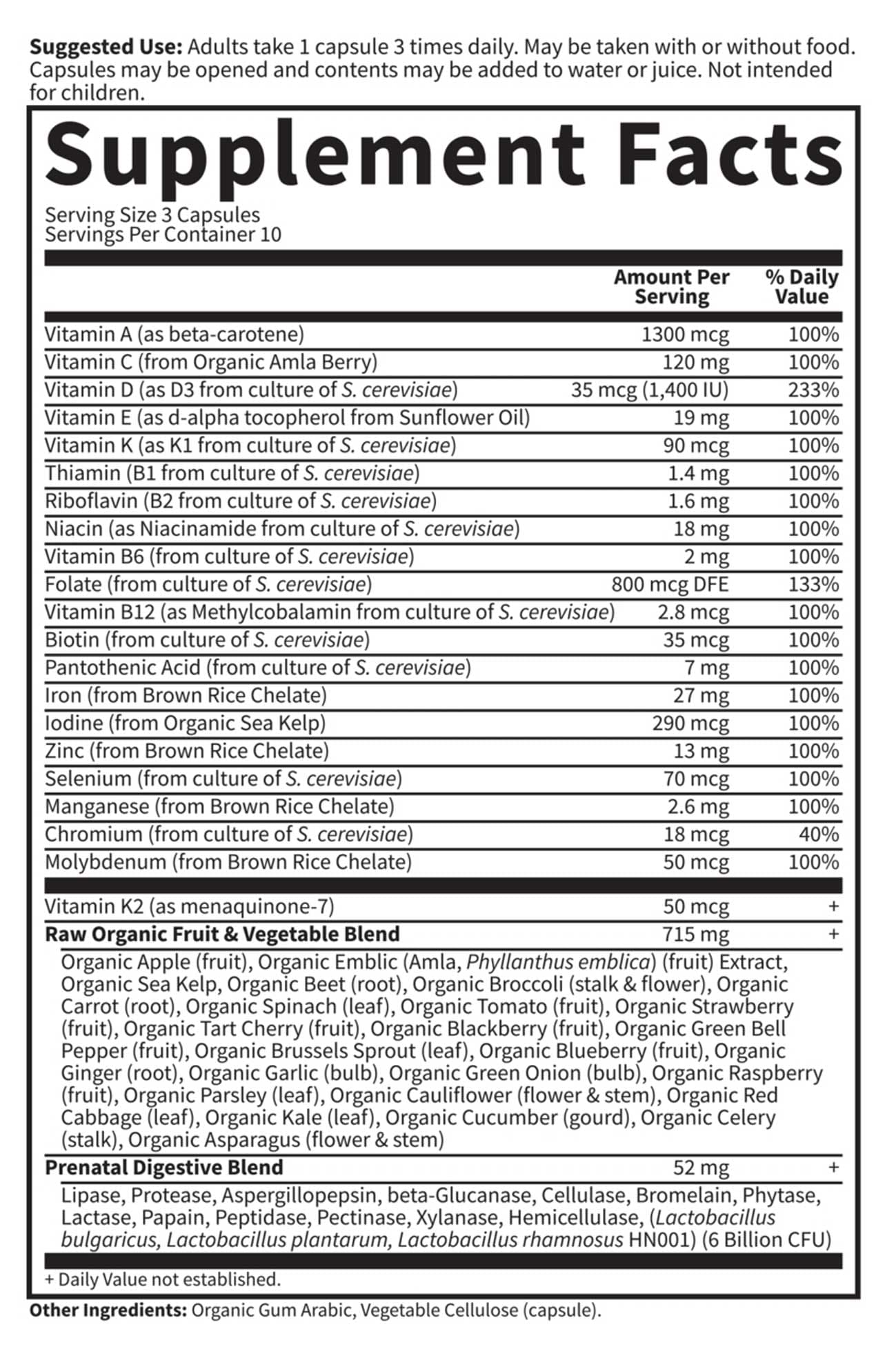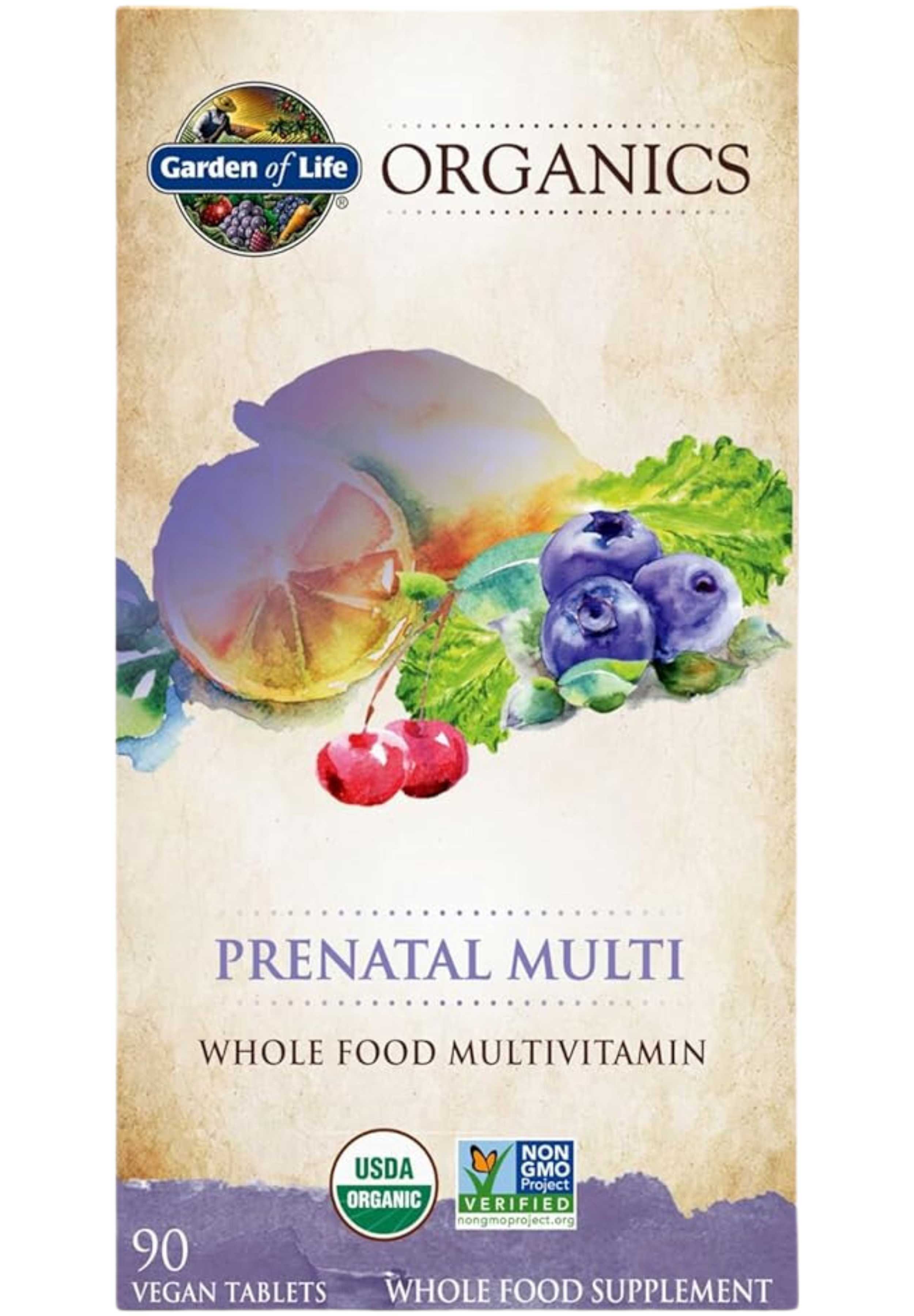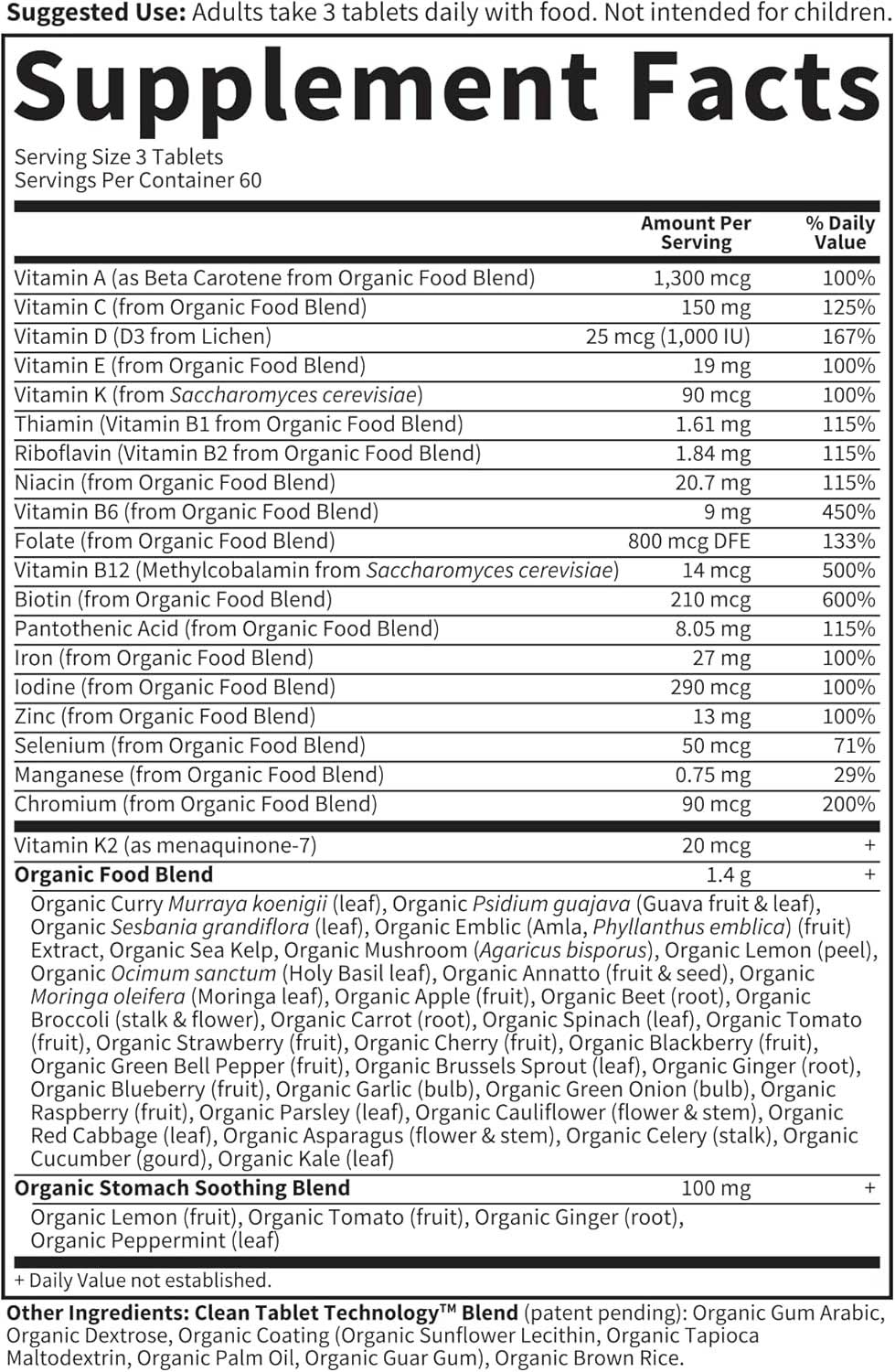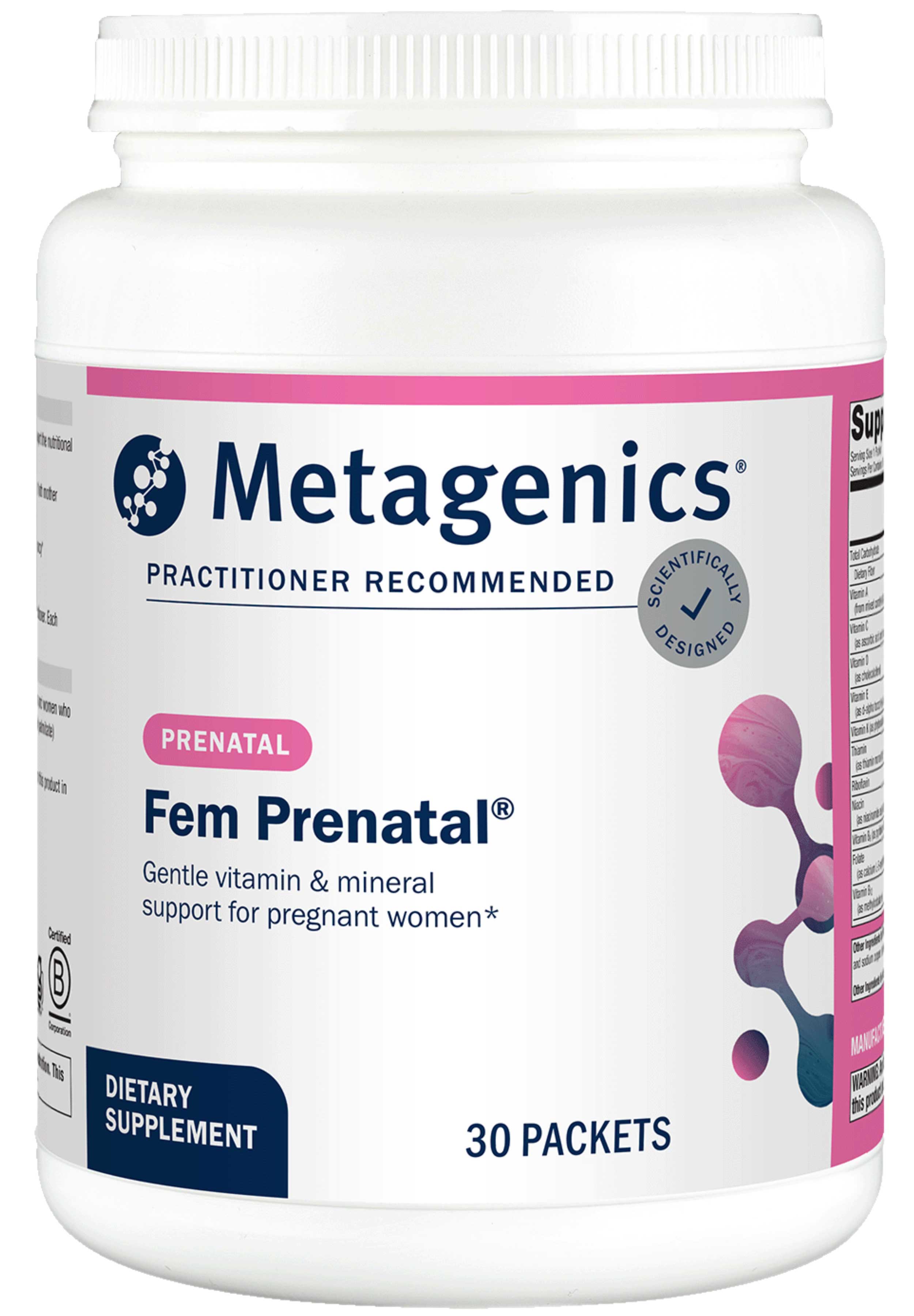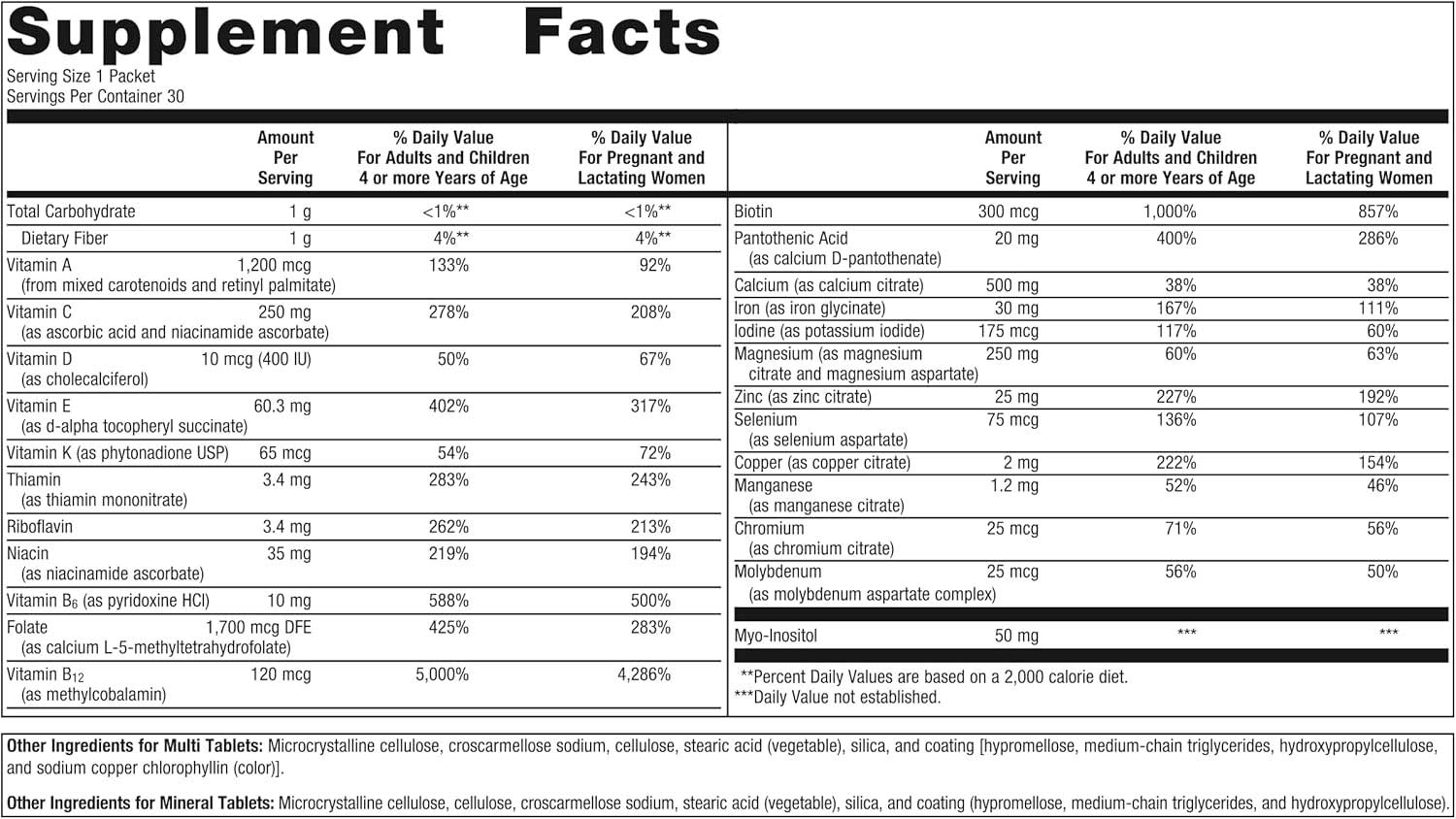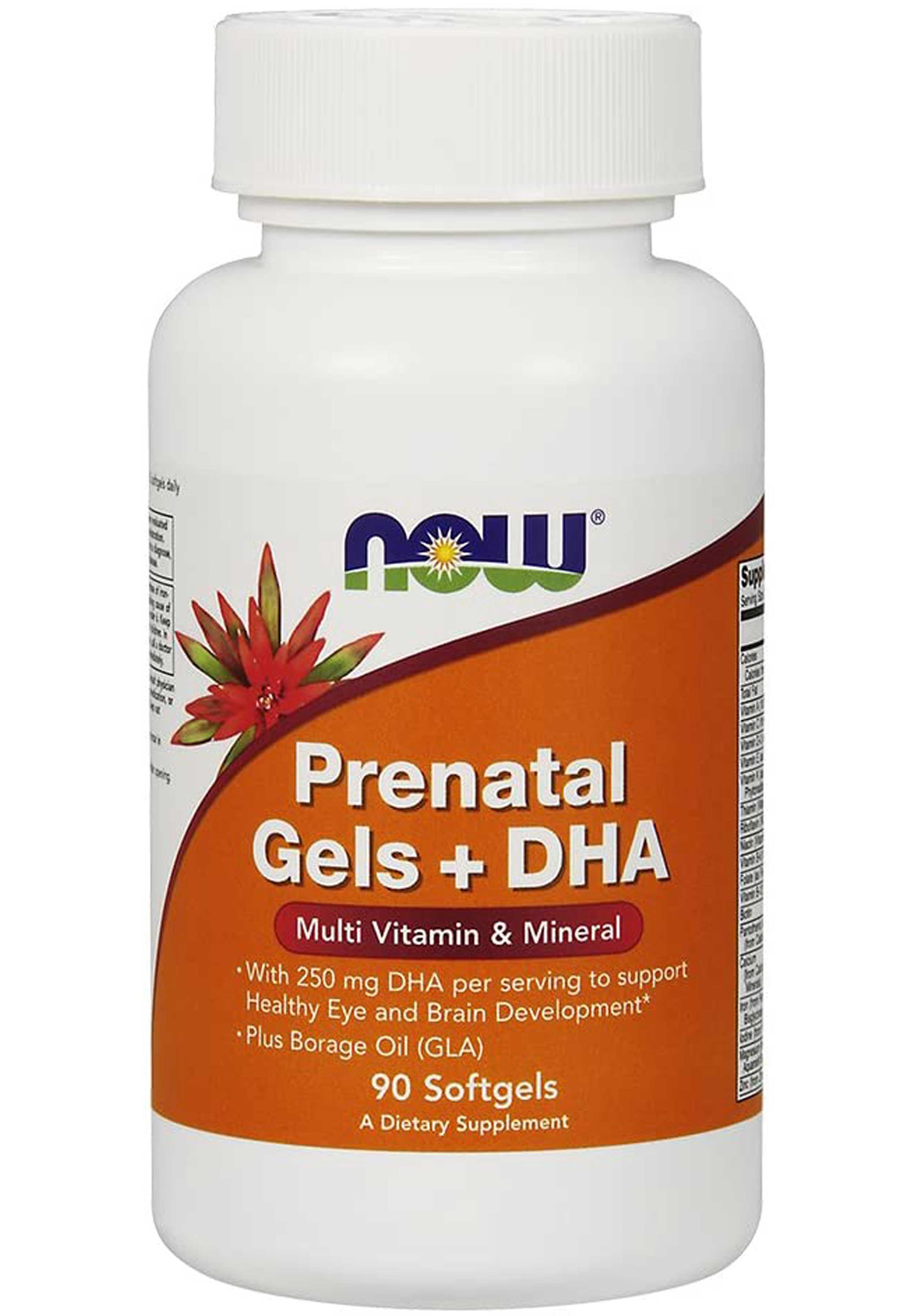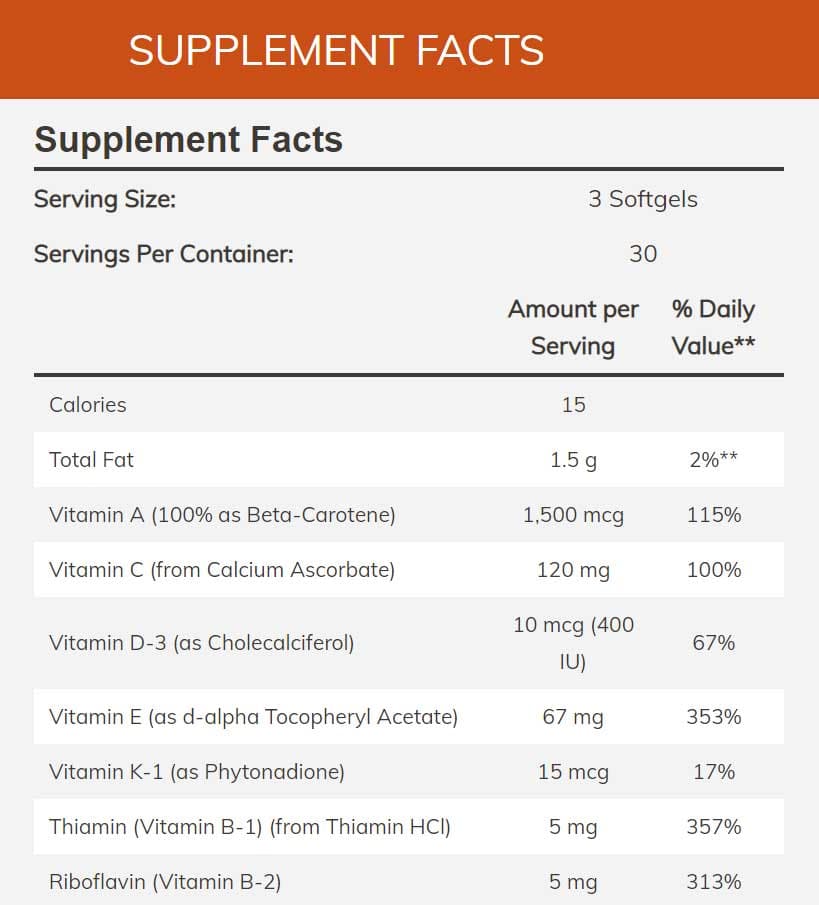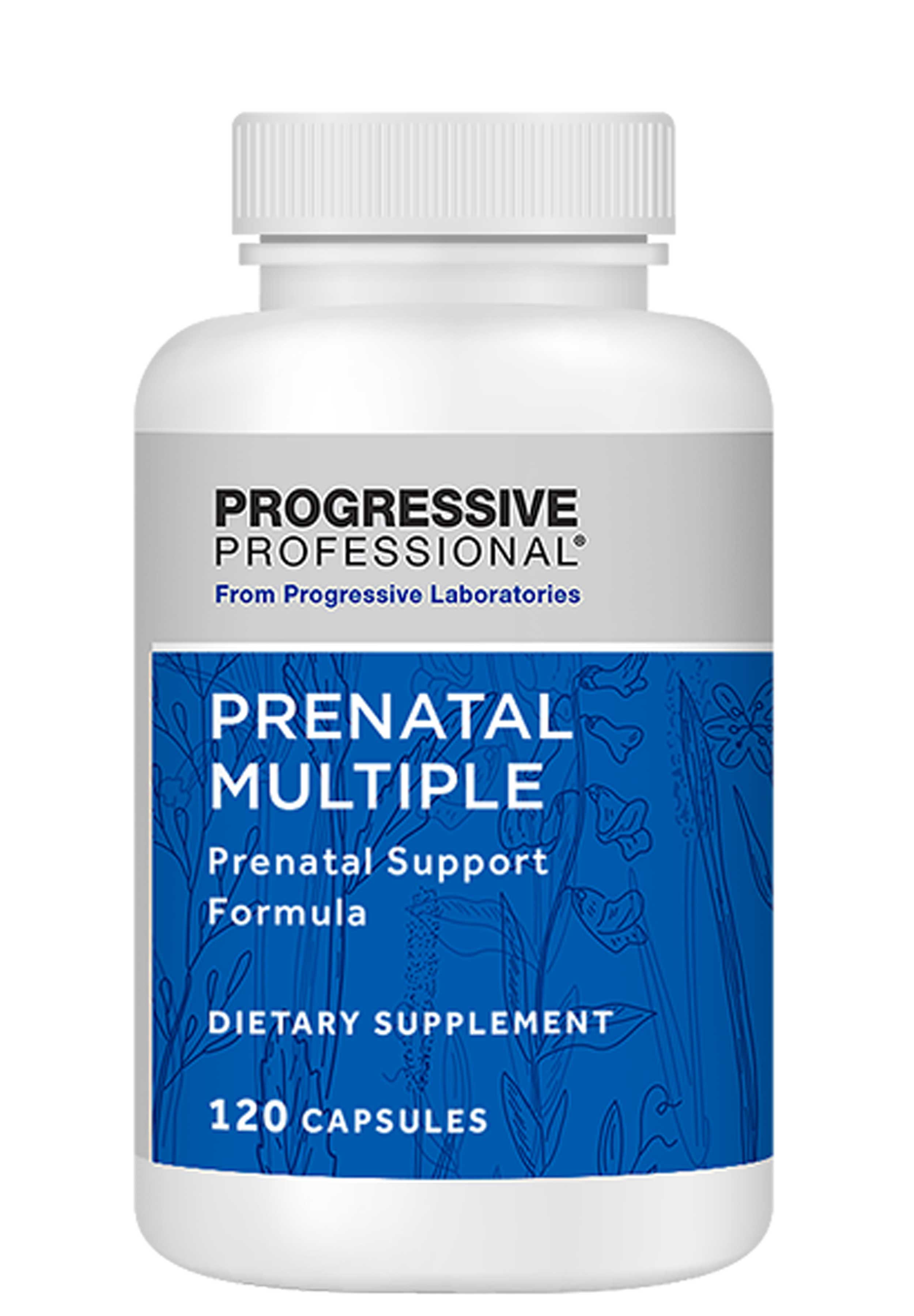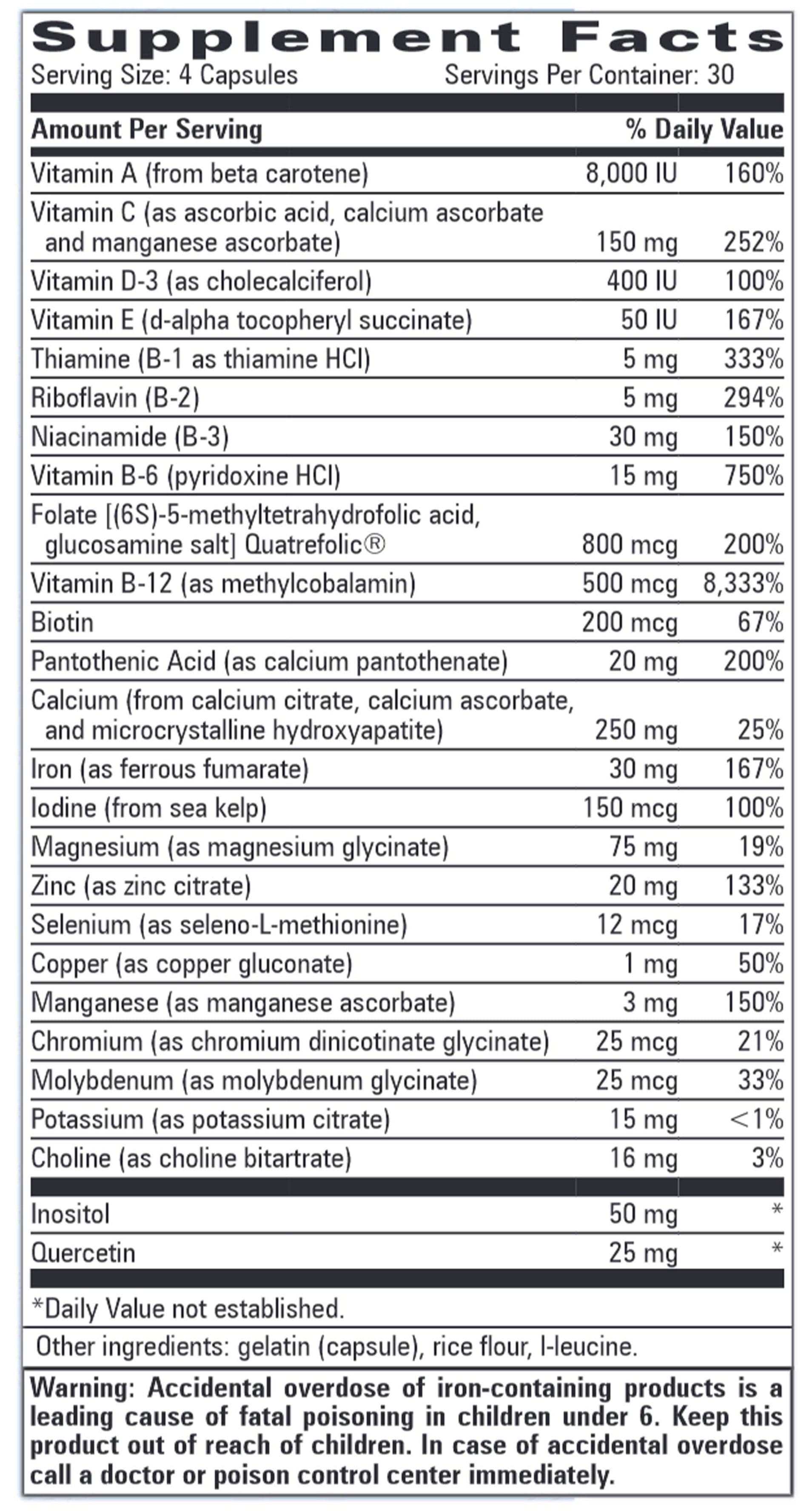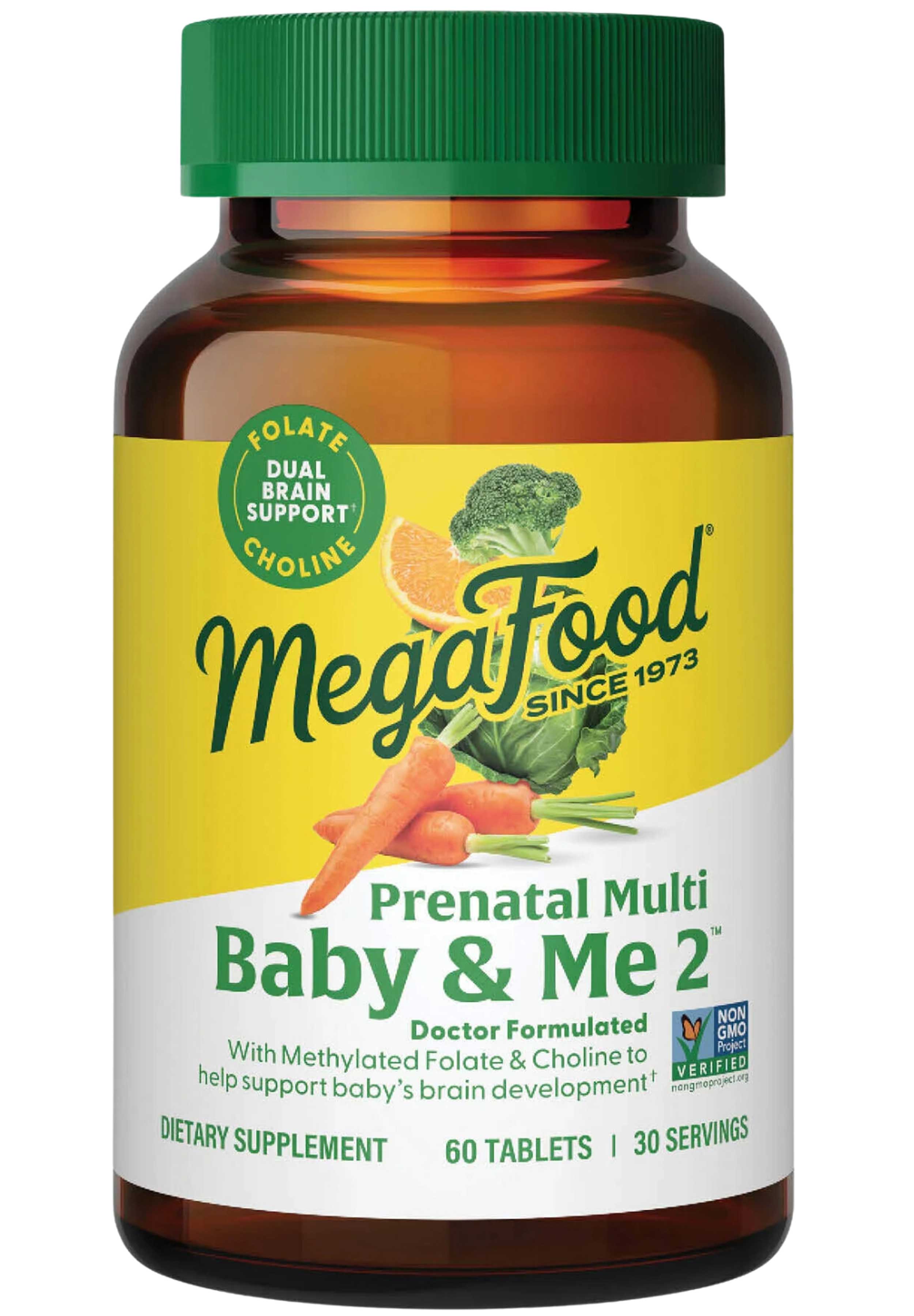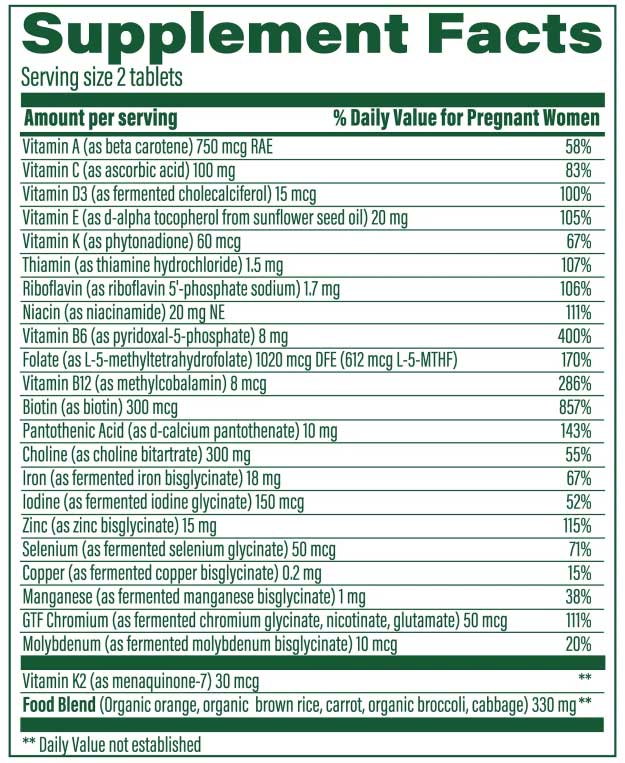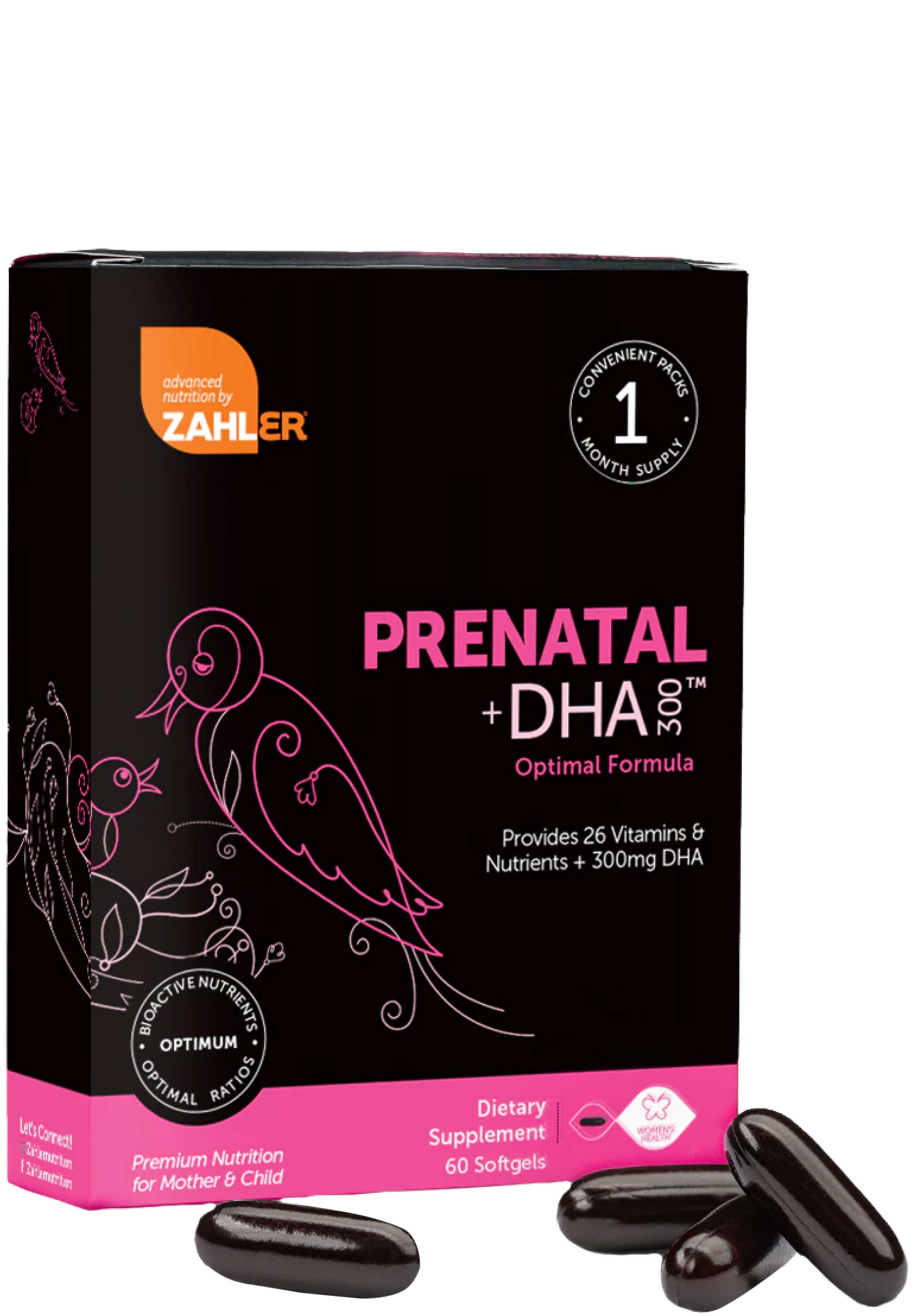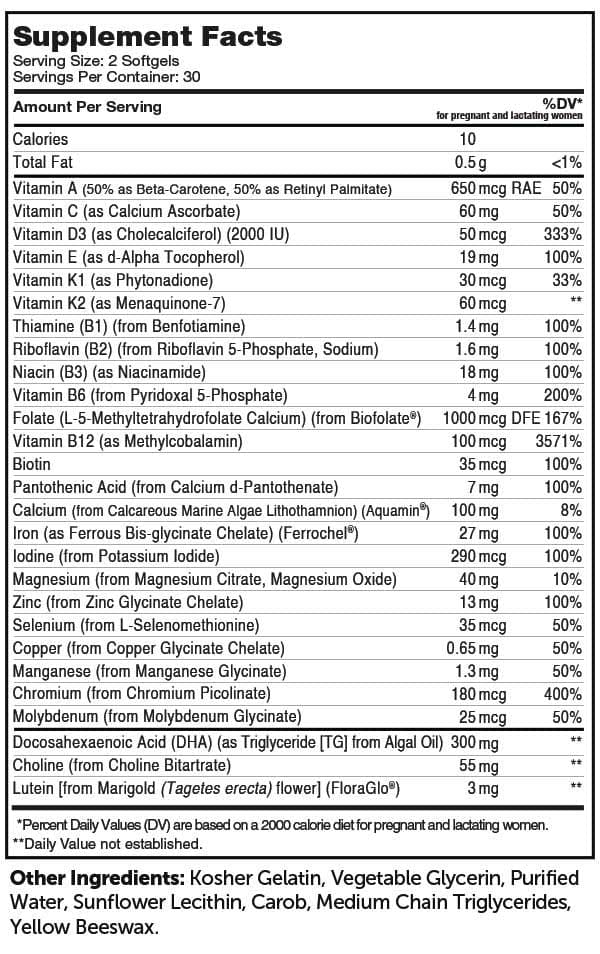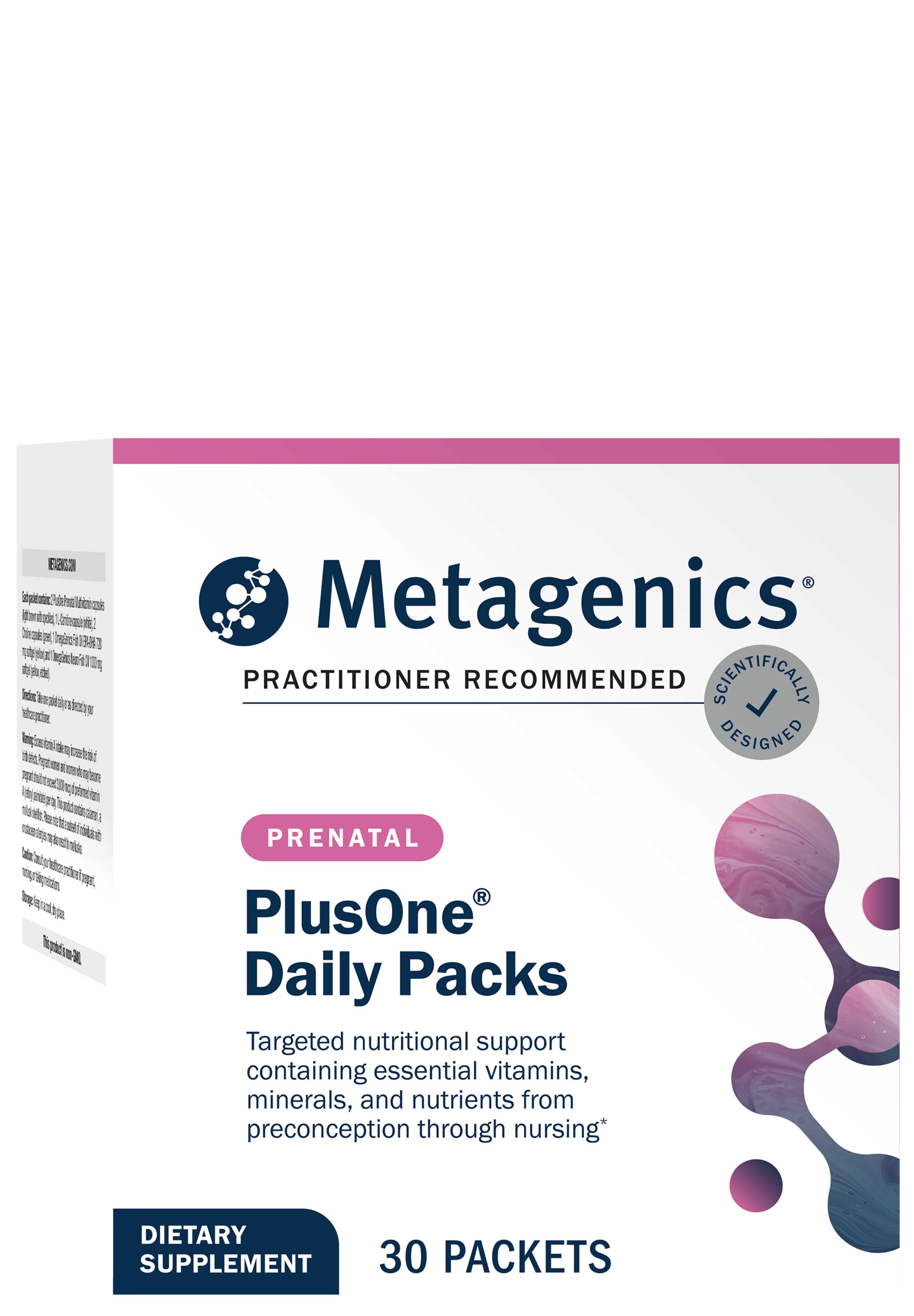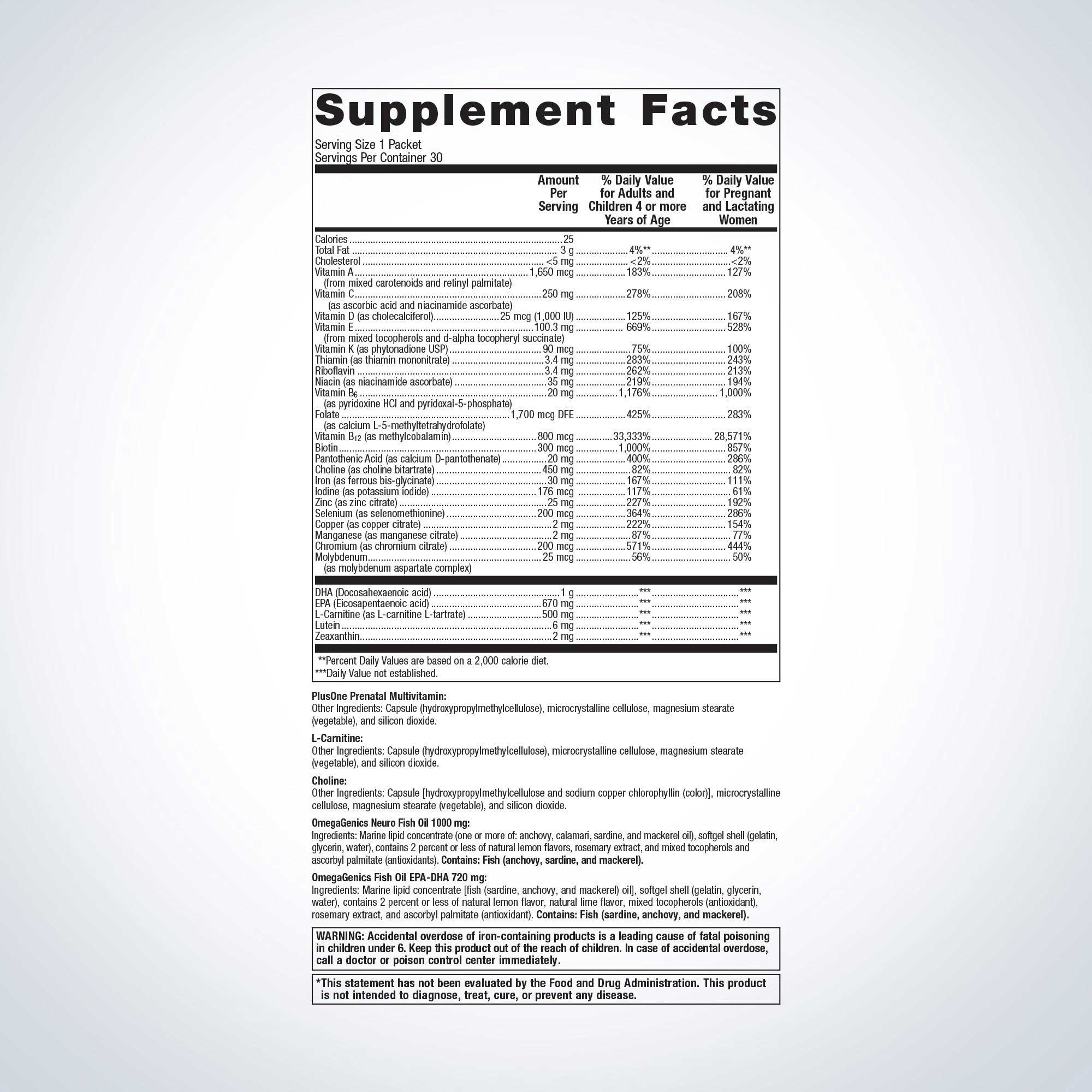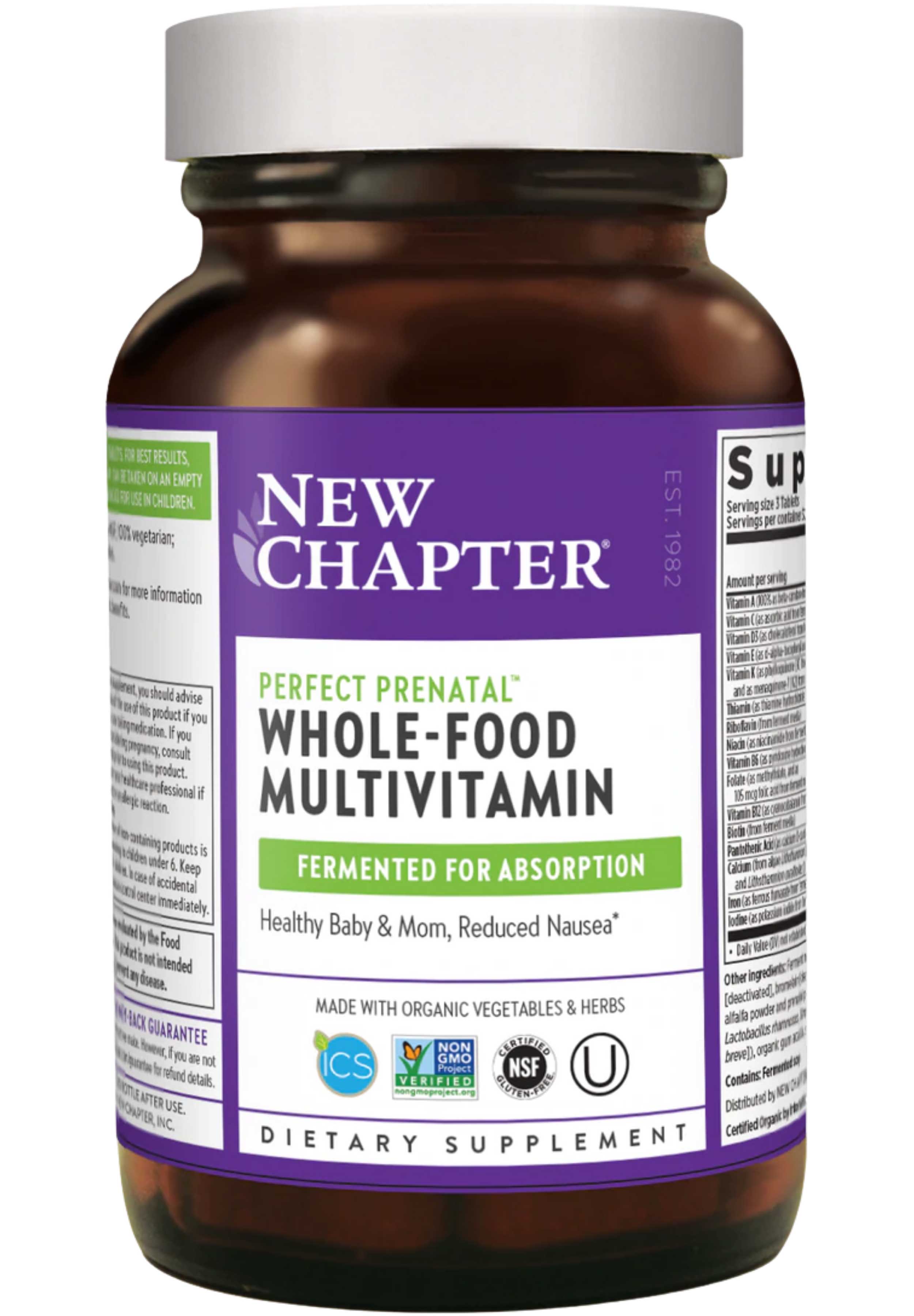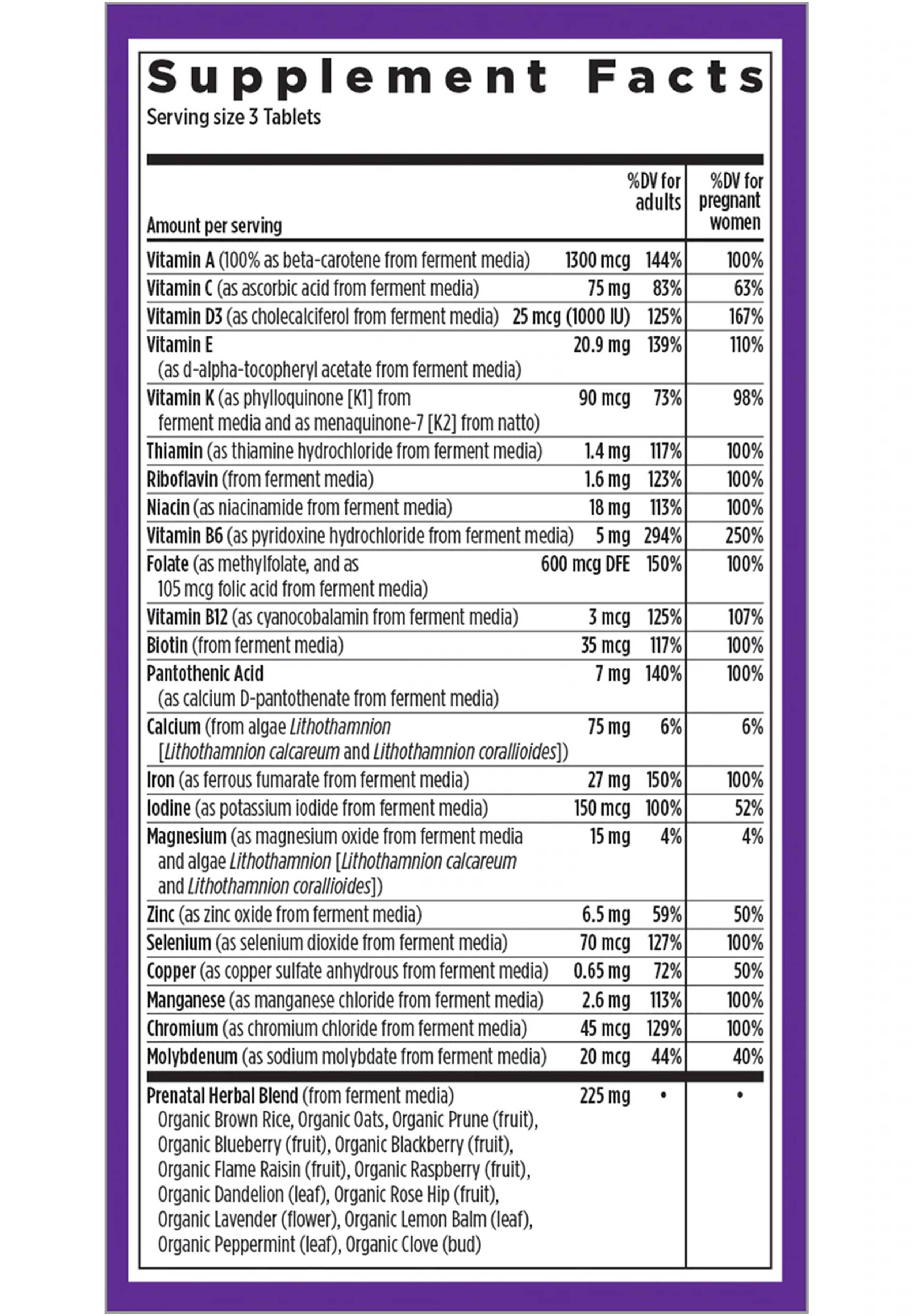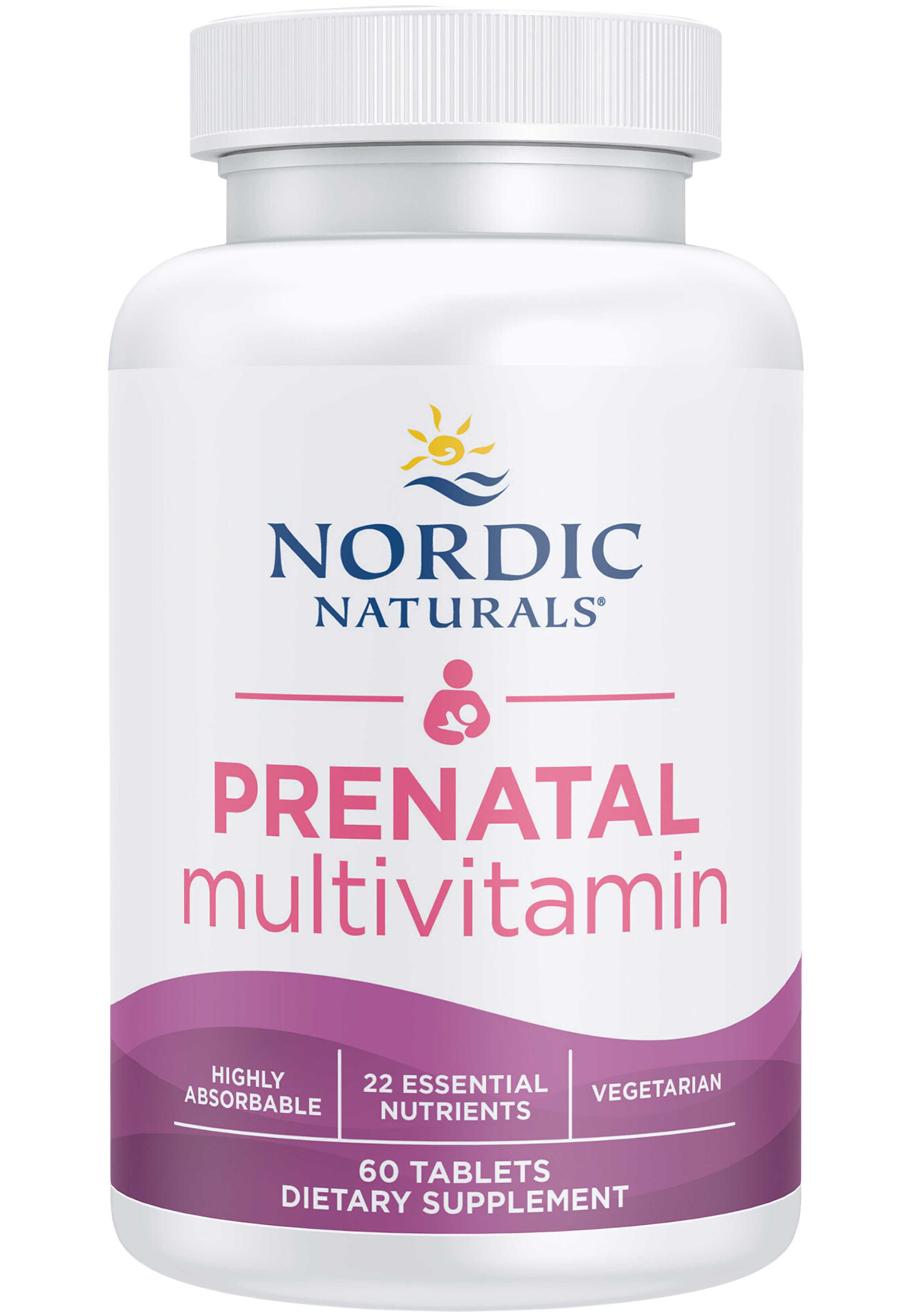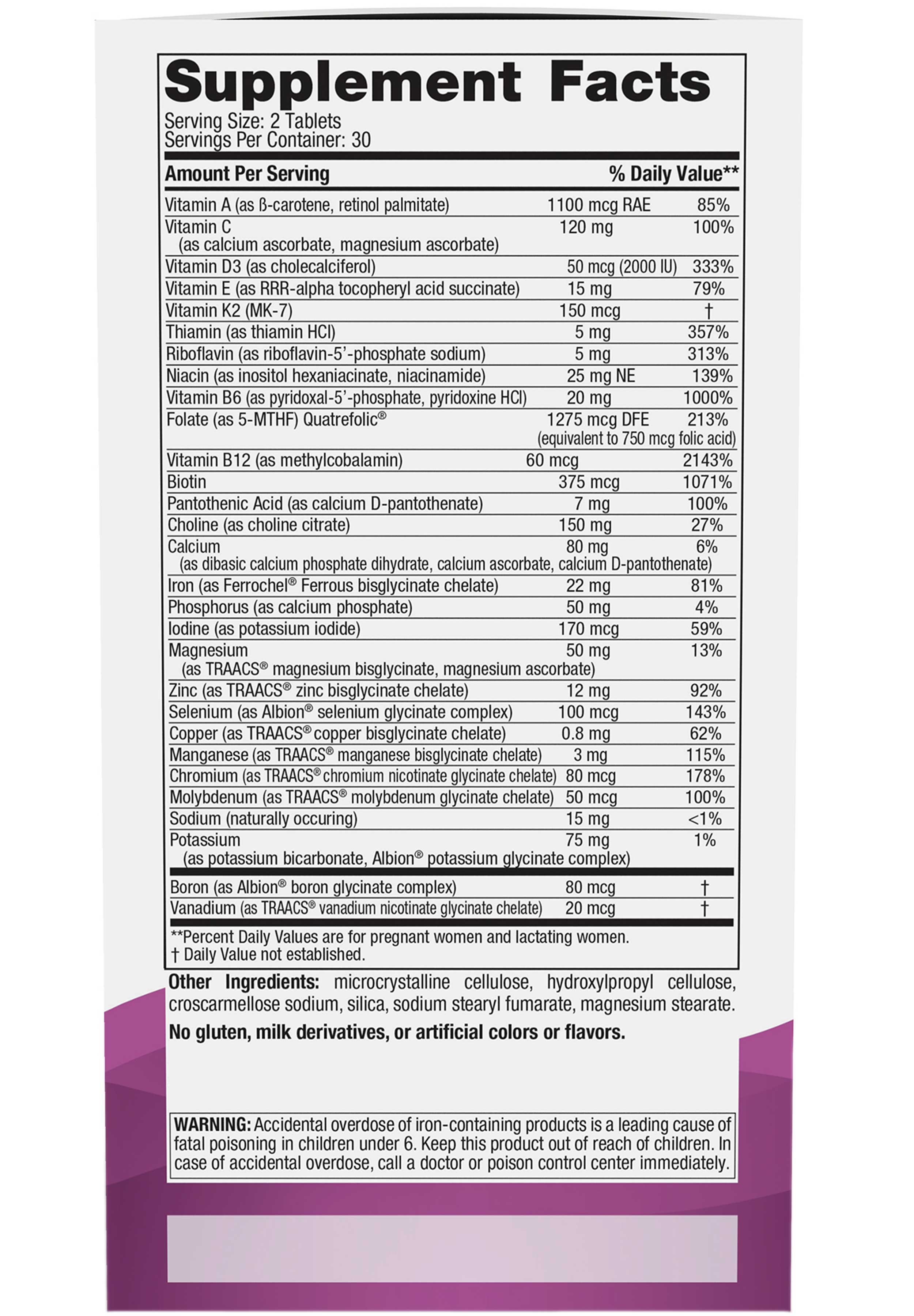About Prenatals
Prenatal multivitamins are crucial for women before, during, and after pregnancy. These supplements provide essential nutrients that support both maternal health and fetal development. Key nutrients often included are folate, iron, and calcium, which help in reducing the risk of birth defects and support the growing baby's needs. Additionally, prenatal multivitamins may contain vitamin D and omega-3 fatty acids, which are beneficial for bone health and brain development. Regular intake of these multivitamins can help bridge nutritional gaps, ensuring that both mother and child receive the necessary nutrients for optimal health.
Key Nutrients in Prenatal Vitamins
Prenatal vitamins are formulated with specific nutrients that play vital roles during pregnancy. One such nutrient is methyl folate, which supports neural tube development, reducing the risk of birth defects. Unlike synthetic folic acid, methyl folate is a bioavailable form, making it easier for the body to utilize.
DHA is another crucial component, known for its benefits in supporting brain and eye development in the fetus. It is often derived from fish oil or algae, providing a reliable source of omega-3 fatty acids.
Additionally, iron is essential for preventing anemia, a common concern during pregnancy. It aids in the production of hemoglobin, ensuring adequate oxygen supply to both mother and baby. Together, these nutrients contribute significantly to maternal and fetal well-being.
Exploring Prenatal DHA and Its Benefits
Prenatal DHA is a vital component in supporting fetal brain and eye development. This omega-3 fatty acid is often sourced from fish oil or algae, providing flexibility for those with dietary preferences. Regular intake of DHA during pregnancy seems to suggest improved cognitive outcomes for the child. As you may know, incorporating DHA into your prenatal routine can be beneficial for both mother and baby.
In this case, prenatal supplements offer a convenient way to ensure adequate DHA intake. They are available in various forms, including capsules and liquids, catering to different preferences and needs.
Organic Prenatal Vitamin Options
Organic prenatal vitamins offer a natural approach to maternal nutrition, emphasizing the benefits of organic ingredients. These supplements are crafted to provide essential nutrients without synthetic additives, appealing to health-conscious individuals. It seems that choosing organic can reduce exposure to pesticides and chemicals, aligning with a cleaner lifestyle.
Moreover, non-GMO and vegan options are increasingly available, catering to diverse dietary preferences. These choices ensure that expecting mothers can find supplements that align with their values and nutritional needs. In other words, organic prenatal vitamins can be a thoughtful choice for those prioritizing purity and sustainability.
- Organic Ingredients: Minimizes exposure to synthetic additives
- Non-GMO Options: Supports a cleaner lifestyle
- Vegan Choices: Aligns with plant-based diets
Importance of Methyl Folate in Pregnancy
Methyl folate plays a pivotal role in pregnancy, particularly in supporting neural tube development. This nutrient is crucial during the early stages of fetal growth, helping to reduce the risk of neural tube defects. Unlike synthetic folic acid, methyl folate is naturally occurring and more easily absorbed by the body, making it a preferred choice for many.
In comparison to synthetic folic acid, methyl folate offers enhanced bioavailability, which means it can be more effectively utilized by the body. This distinction is important for expecting mothers aiming to optimize their nutrient intake. Including methyl folate in prenatal supplements can provide significant support for both maternal and fetal health.
- Neural Tube Development: Essential for early fetal growth
- Bioavailability: More easily absorbed than synthetic folic acid
- Maternal Support: Helps reduce the risk of birth defects
Postnatal Vitamins for Recovery
Postnatal vitamins are designed to support recovery and lactation after childbirth. They provide essential nutrients that help replenish the body's stores, which may be depleted during pregnancy and delivery. These supplements often include vitamins and minerals that aid in energy production, such as B vitamins and iron, which can help combat postpartum fatigue.
Additionally, postnatal vitamins may contain ingredients like DHA, which supports brain health, and calcium, which is crucial for bone strength. Incorporating these supplements into your routine can help ensure a smoother recovery and support overall well-being.
- Energy Support: B vitamins and iron
- Brain Health: DHA inclusion
- Bone Strength: Calcium supplementation
Choosing Prenatal Gummies for Convenience
Prenatal gummies offer a convenient and palatable alternative to traditional capsules and liquids. These chewable supplements often appeal to those who find swallowing pills challenging or prefer a more enjoyable way to consume their vitamins. Prenatal gummies typically include essential nutrients like folate, DHA, and iron, ensuring comprehensive support for maternal and fetal health.
While gummies provide ease of use, it's important to compare them with other forms. Capsules and liquids might offer higher concentrations of certain nutrients, but gummies can be a practical choice for those prioritizing convenience. Additionally, many gummy formulations are available in organic and allergen-free options, catering to diverse dietary needs and preferences.
Allergen-Free Prenatal Supplements
Allergen-free prenatal supplements are essential for expectant mothers with sensitivities. These supplements help avoid common allergens, ensuring a safe and supportive experience during pregnancy. It's crucial to check labels for potential allergens like gluten, dairy, soy, and nuts.
Choosing allergen-free options can provide peace of mind and promote overall well-being. Here are some common allergens to avoid:
- Gluten
- Dairy
- Soy
- Nuts
By selecting allergen-free prenatal supplements, you can focus on nourishing both yourself and your baby without worry.
Highlighted Features of Prenatal Supplements
Prenatal supplements are designed with bioavailability in mind, ensuring that essential nutrients are effectively absorbed by the body. This focus on bioavailability helps maximize the benefits of vitamins and minerals, such as methyl folate and DHA, which are crucial during pregnancy.
Additionally, many prenatal supplements are crafted without fillers or synthetic additives. This absence of unnecessary ingredients not only enhances the purity of the supplements but also reduces the risk of adverse reactions. Consider these key features:
- Enhanced nutrient absorption
- Free from synthetic additives
- Focus on purity and safety
These features make prenatal supplements a reliable choice for supporting maternal health.
Top Prenatal Multivitamin Brands
When selecting prenatal multivitamin brands, several criteria should guide your choice. Look for brands that prioritize quality assurance and transparency in their ingredient sourcing. It's also beneficial to choose those offering comprehensive nutrient profiles, including methyl folate and DHA, which are crucial for maternal and fetal health.
Popular choices among consumers often include brands known for their commitment to scientifically-supported formulations and those that offer organic or allergen-free options. These brands tend to have a strong reputation for delivering effective and reliable prenatal supplements, ensuring peace of mind for expectant mothers.
Bioavailability in Prenatal Formulations
The bioavailability of nutrients in prenatal supplements is crucial for ensuring that both mother and baby receive the necessary support. This term refers to how well and quickly nutrients are absorbed and utilized by the body. Factors such as the form of the nutrient and the presence of other ingredients can significantly affect absorption rates.
For instance, methyl folate is often preferred over synthetic folic acid due to its superior bioavailability. Additionally, the inclusion of natural ingredients and the absence of fillers can enhance nutrient absorption. By choosing supplements with high bioavailability, expecting mothers can better support their health and their baby's development.
FAQs for Prenatal Supplements
What are the benefits of prenatal vitamins?
Prenatal vitamins provide essential nutrients that support both maternal health and fetal development. They often include folate, iron, and DHA, which are crucial for reducing birth defects, preventing anemia, and supporting brain and eye development.
When should I start taking prenatal supplements?
It's advisable to start taking prenatal supplements before conception if possible, and continue throughout pregnancy and lactation. This ensures that your body has the necessary nutrients to support a healthy pregnancy from the start.
Are there vegan prenatal vitamins available?
Yes, there are vegan prenatal vitamins available. These options typically use plant-based sources for nutrients like DHA and avoid animal-derived ingredients, catering to those following a vegan lifestyle.
How do prenatal gummies compare to capsules?
Prenatal gummies offer a convenient and palatable alternative to capsules, often with pleasant flavors. However, they may contain lower concentrations of certain nutrients and added sugars, so it's important to check the label to ensure they meet your nutritional needs.
Can prenatal vitamins be taken post-pregnancy?
Yes, prenatal vitamins can be beneficial post-pregnancy, especially during lactation. They help replenish nutrients and support recovery, providing essential vitamins and minerals that aid in maintaining energy levels and overall health.

